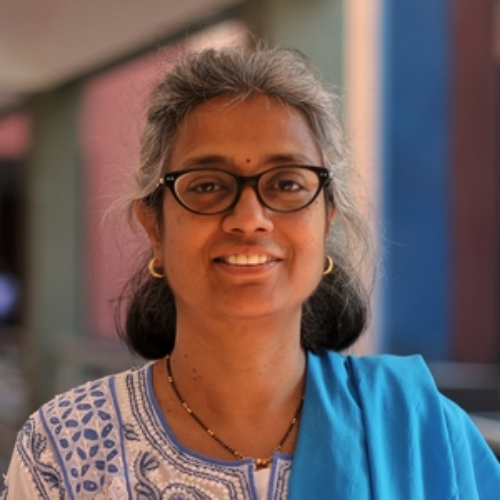Notification
India Rural Colloquy Sessions
18 July 2023
Ranchi | Bhopal
Future of Rural India
Xavier Institute of Social Service (XISS), Ranchi
The New Village
Atal Bihari Vajpayee Institute of Good Governance and Policy Analysis (AIGGPA), Bhopal
22 July 2023
Raipur
Samaj, Sarkar and Bazaar in the New Villages
Hotel Babylon International (HBI), Raipur
1-8 August 2023
New Delhi
Click on the event block below to RSVP and secure your spot. We kindly ask you to register once by providing your details, so we can prepare for your attendance and keep you updated with any event-related information.
august, 2023
- 1st August
- 10:00 AM – 10:30 AM
- Indian Habitat Centre – Juniper Hall
- Hybrid
India’s Rural Renaissance
We kick off our third annual Indian Rural Colloquy in which we ask – Is India on the brink of a rural renaissance?
We explore the directional vision and public narrative of India’s hopeful rural renaissance, with an actionable agenda that will lead to quality education for all, universal access to healthcare, economic growth, jobs and a resilient environment.
- 1st August
- 10:30 AM – 12:00 PM
- Indian Habitat Centre – Juniper Hall
- Hybrid
Emerging Trends in Society and Economy
Our society and economy are seeing major disruptions – from climate change, technology, the changing nature of work, consumption patterns and cultural trends demanding change in every aspect of our lives. These deliberations will landscape the change as it impacts rural India and its inter-dependent connect with the larger society and national economy. Embracing white space analysis, we will discuss the vulnerabilities related to inequality and the real opportunities to further human well-being and economic growth in our fast-changing world.
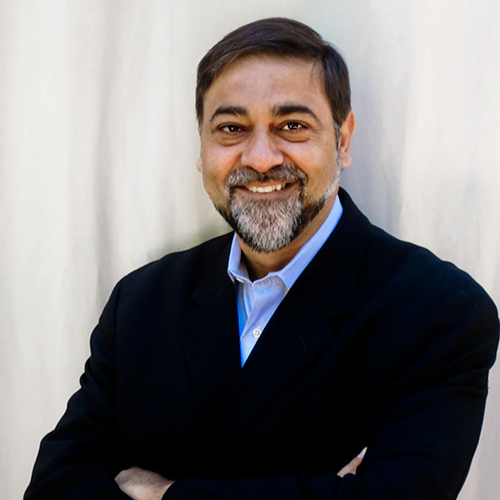
Vivek Wadhwa is an academic, entrepreneur, and author of five best-selling books: From Incremental t…More

Vivek Wadhwa is an academic, entrepreneur, and author of five best-selling books: From Incremental to Exponential; Your Happiness Was Hacked; The Driver in the Driverless Car; Innovating Women; and The Immigrant Exodus.
He has been a globally syndicated columnist for The Washington Post and has held appointments as Distinguished Fellow at Harvard Law School’s Labor and Worklife Program, Carnegie Mellon University, and Emory University; adjunct professor at Carnegie Mellon and Duke University; fellow at Stanford Law School and UC Berkeley; and head of faculty at Singularity University.
Vivek is based in Silicon Valley and researches, speaks, and writes about advancing technologies that are transforming our world. These advances – in fields such as robotics, artificial intelligence, computing, synthetic biology, 3D printing, medicine, and nanomaterials – are making it possible for small teams to do what was once possible only for governments and large corporations to do: solve the grand challenges in education, water, food, shelter, health, and security.
In 2012, the U.S. Government awarded Wadhwa distinguished recognition as an “Outstanding American by Choice” for his “commitment to this country and to the common civic values that unite us as Americans”.
He was also named one of the world’s “Top 100 Global Thinkers” by Foreign Policy magazine in that year; in June 2013, he was on TIME magazine’s list of “Tech 40”, one of forty of the most influential minds in tech; and in September 2015, he was second on a list of “ten men worth emulating” in The Financial Times. In 2018, he was awarded Silicon Valley Forum’s Visionary Award, a list of luminaries “who have made Silicon Valley synonymous with creativity and life-changing advancements in technology”.

Venkat is the Founder and CEO of Karkinos Healthcare, a purpose driven, technology led, oncology pla…More

Venkat is the Founder and CEO of Karkinos Healthcare, a purpose driven, technology led, oncology platform. Earlier, he was an Advisor to the Chairman, Reliance Industries Limited. Prior to his association with Reliance, Venkat spent more than a decade and a half with the Tata Group in various capacities. His last assignment in the Tata Group was as Managing Trustee of the Tata Trusts wherein he was responsible for the operations, oversight and co-ordination between the various Tata Trusts.
During his stint in the Chairman’s office of Tata Sons, Venkat was part of several significant projects including the Tata Motors acquisition of Jaguar Land Rover, launch of the small car Nano, creation of several Joint Ventures, responses in operating companies during the 2008 financial crisis etc. Prior to his stint with Mr. Tata’s office, Venkat was associated as Head of Business Support at the Qatar Foundation. Venkat is a science graduate and has done his MBA from the Sri Satya Sai University, Puttaparthi. He is also a Law Graduate from Mumbai University and has completed his Advanced Management Program (AMP) from the Harvard Business School. He has also completed his EngD from the University of Warwick, UK on role of Technology in Health Care Systems.
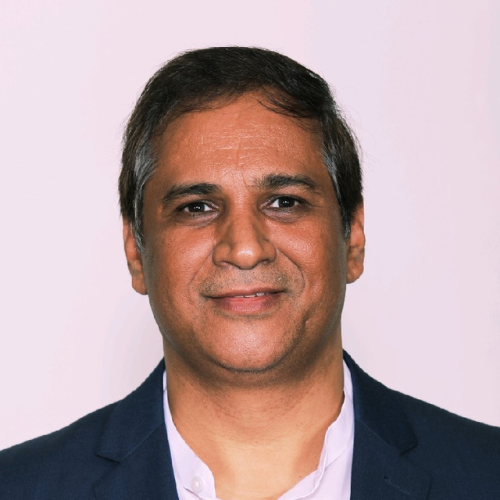
Vineet Rai is the Founder of Aavishkaar Group and chairs its Board and Group Executive Council. Aavi…More

Vineet Rai is the Founder of Aavishkaar Group and chairs its Board and Group Executive Council. Aavishkaar Group is an Impact Investment Platform impacting millions of people in Asia and Africa using an entrepreneurship based development approach.
Vineet believes in building impact ecosystems to deliver real Impact as enshrined in the vision of Aavishkaar Group “We exist to bridge the Opportunity gap for the Emerging 3 Billion”. Vineet believes that Impact Investing has the potential to change the world of finance irreversibly.
The Group’s ecosystems include Aavishkaar Capital – the Impact fund manager focused on Global South, Arohan – One of India’s largest & most digitally advanced microfinance institution (MFI) targeting low income households, Ashv Finance – a Fin Tech NBFC, offering unique cash flow based business loans to Micro, Small & Medium Enterprises and IntelleCap –building Impact Ecosystems globally.
Aavishkaar Group has 8000 employees, manages assets in excess of US $ 1.2 Billion while trying to serve needs of entrepreneurs from debt of US $ 150 (INR 10 thousands) to equity of US $ 15 Million (INR 100 Crore) while aligning the group to 13 out of the 17 Sustainable Development Goals or SDG’s.
Vineet has received numerous awards including the 2021 Access-HSBC Inclusive Finance India Award for personal contribution to Financial Inclusion in India, TIE Hall of Fame 2018, the Impact Investor of the Year by News Corp for 2016, Porter Prize for Strategic Leadership in Social Space, 2016, CNBC TV 18 Award for being the Catalyst Fund for India 2016, G 20 – SME Innovation in Finance Award 2010 in Seoul South Korea, UNDP-IBLF –ICC World Business Award in 2005 and Lemelson Award for Social Venture Investing. In 2021 Vineet Rai and Swati Rai (Co-Founder) was awarded the Faces of Vibrant Bharat 2021 by Grant Thorton Bharat. He is an Ashoka Fellow and Honorary Member of XLRI Alumni Association.
In 2022, Vineet has been appointed on the G20 Start up 20 Engagement Group Task Force on Sustainability and Securities and Exchange Board of India has appointed him on Advisory Committee of the Social Stock Exchange. Vineet was invited by the Hon’ble Prime Minister Shri Narendra Modi for his “Roundtable interaction with Venture Capital and Private Equity Funds”. In 2021. Vineet was also invited by the Prime Minister Shri Narendra Modi for consultations on doubling the income of the farmers in September 2017 as part of his champions of change program. Vineet has also served on the advisory committee of SEBI for the formation of Social Stock Exchange, as Commissioner at the Business Commission for Sustainable Development, as Senior Advisor to Blended Finance Working Group at OECD and as an Advisor to United Nations Economic and Social Commission for Asia and the Pacific Science Technology and Innovation Advisory Board.
Vineet featured on the cover of Forbes India, January 2018 issue. Paul Polman, CEO of Unilever endorsed Aavishkaar Intellecap Group for its efforts in furthering inclusive development.
Driving on Indian roads is one of his passions and he tries to cover 50,000 KM every year.
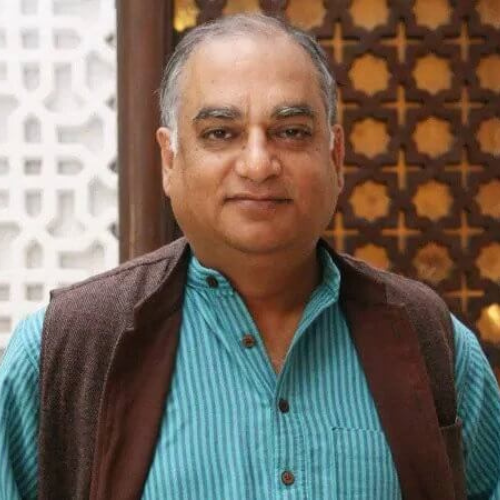
Mr. Vijay Mahajan is an internationally known Indian rural development professional, social entrepre…More

Mr. Vijay Mahajan is an internationally known Indian rural development professional, social entrepreneur and a policy analyst. He is the founder of reputed organizations such as Pradan and the Basix Social Enterprise Group. He has also served on the Insurance Regulatory and Development Authority of India Rangarajan Committee on Financial Inclusion and the Raghuram Rajan Committee on Financial Sector Reforms. He has published over 20 papers in prestigious Indian and international journals, contributed chapters in 15 academic books and has authored over 70 papers/articles in the area of rural development, livelihood promotion and employment, microfinance, financial inclusion, social innovations and entrepreneurship. He is an alumnus of Indian Institute of Management – Ahmedabad and Indian Institute of Technology – Delhi, and was mid-career Fellow at the Princeton University, USA.
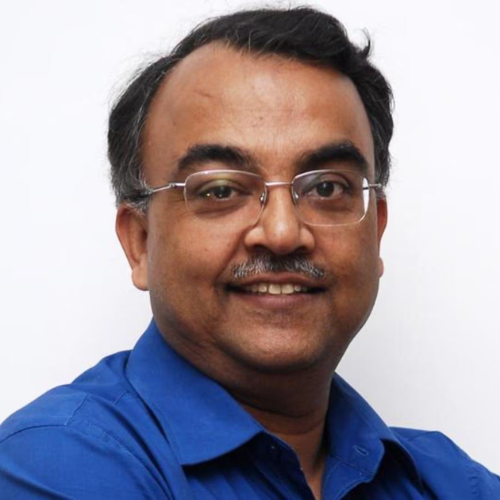
Amarjeet Sinha is currently posted as Member, Public Enterprises Selection Board (PESB). He was earl…More

Amarjeet Sinha is currently posted as Member, Public Enterprises Selection Board (PESB). He was earlier posted as Advisor to the Prime Minister till 31 July 2021. An Indian Administrative Service (IAS) Officer of Bihar Cadre of 1983 batch, he retired in December 2019 as Secretary, Department of Rural Development, Government of India. He has 40 years of experience in Government, largely in the rural and social sector. He has had the unique distinction of having played a major role in designing Sarva Siksha Abhiyan (India’s main programme for universal education), the National Rural Health Mission, and in bringing about governance reforms in programmes for rural areas covering livelihoods, employment, housing, social security, skills, rurban development, and road construction. He also coordinated successfully the work of Gram Swaraj Abhiyan in 2018 to reach seven pro-poor public welfare interventions (LPG, electricity, Bank Account, life and accident insurance, LED Bulbs, and Immunization) to 63974 large villages with over 50% vulnerable social group population. Multi-Dimensional Poverty and its Reduction, Public Policy and Public Management are areas of his work.
At the State level, Amarjeet served in the education and health sectors. He has also had the opportunity to serve in the remote tribal district of Singhbhum in present day Jharkhand and in the Naxalite affected Jehanabad district of Bihar.
He has also been training Indian Administrative Service Officer Trainees at the Lal Bahadur Shastri National Academy of Administration, Mussoorie on the social sector for the last 30 years. He has the distinction of having travelled to over 90% of India’s districts to promote human development initiatives.
Sinha has published seven books on public policy and a large number of articles in publications such as Lancet, Economic and Political Weekly, Economic Times, The Hindu, The Indian Express, The Times of India, The Business Standard, The Hindustan Times, etc. His last book “An India for Everyone – A Path to Inclusive Development”, was published by Harper Collins in 2013. Hindi translation of the book, “Hum Sab ka Bharat”, is also available. His forthcoming book, “The Last Mile – Turning Public Policy Upside Down”, is being published by Routledge, UK and is likely to be released by September 2023. He has recently contributed to the Notion Press Book on fifteen Change Makers, The Book of Aspiration. Amarjeet has been regularly writing Op Eds for all the leading Indian dailies on issues of human well-being, community connect, decentralization, and a more inclusive India.
Amarjeet has been associated with Public Policy with Azim Premji University, ISB, ISPP, Kautilya School of Public Policy, etc. He delivered the ICSSR Annual Lecture 2022 on Bridging the Last Mile in Pro-Poor Public Welfare. He is also an Advisor to Sampark Foundation for frugal innovations on scale in education, on Health and Human Development with the Centre for Social and Economic Progress, and with Women’s World Bank on Making Finance Work for Women. He was a Member of the Jury for The Indian Express Governance Awards this year. He Chairs a Committee for suggesting reforms in the MGNREGS. Amarjeet Chairs the Gender Expert Committee of the Reserve Bank Innovation Hub.
A student of St. Stephen’s College, he topped the Delhi University and is a recipient of the National Talent Scholarship, the Rhodes Scholarship and the Oxford Cambridge Society of India Scholarship. He has also been the President of the St. Stephen’s College Students’ Union Society.

Aliva Das leads Youth Initiative in TRIF particularly focused on 4 E – Employability, Entitlements…More

Aliva Das leads Youth Initiative in TRIF particularly focused on 4 E – Employability, Entitlements, Education, Entrepreneurship. She has 10+ years of unique experience working both with the government in implementation and policy-making and directly with the youth communities. She has pioneered the “Yuva Compass” solution to catalyze economic opportunities for rural youth and migrants in remote locations of the country. Before TRIF, she was working with Madhya Pradesh State Skill Mission as a Consultant. She has extensive experience in skill development and youth employment. She was also a Prime Minister’s Rural Development Fellow (PMRDF) in Odisha. She is a postgraduate from the Tata Institute of Social Sciences, Mumbai.
- 1st August
- 12:15 PM – 3:30 PM
- Indian Habitat Centre – Juniper Hall
- Hybrid
Business in rural: Future Shapers of India Roundtable
Innovative businesses bring new ideas, skills and investment in rural India, creating wealth and well-being. Young scions are laying a new commitment to leverage this rural economy and engage with the resource endowments creatively. In this discussion with select young India Inc. leaders, we uncover their vision and efforts in shaping the future of India’s villages.

Vijay Shekhar Sharma is an Indian technology entrepreneur and highly successful business magnate. He…More

Vijay Shekhar Sharma is an Indian technology entrepreneur and highly successful business magnate. He is renowned as the founder, chairman, and managing director of One97 Communications, which was established in 1997. He further expanded his entrepreneurial ventures by creating Paytm, a popular consumer brand, in 2010.
Recognizing Sharma’s expertise and contributions, the Universal Acceptance Steering Group appointed him as the UA Ambassador in India in January 2022. As of September 2022, Forbes estimated his net worth to be approximately $1.1 billion, showcasing his remarkable financial success.
Born on July 15, 1978, in Aligarh, Uttar Pradesh, Sharma hails from a humble background. He grew up as the third of four children to Sulom Prakash, a school teacher, and Asha Sharma, a homemaker. Despite his modest beginnings, Sharma displayed exceptional intellect and became a college student at the age of 15. By the time he was 19, he had completed his studies at Delhi College of Engineering (now Delhi Technological University), earning a B.Tech degree.
During his college years in 1997, Sharma initiated the website indiasite.net. Just two years later, he sold it for a substantial sum of $1 million. Building upon this early success, he founded One97 Communications in 2000. The company initially focused on mobile content offerings, such as news, cricket scores, ringtones, jokes, and exam results. One97 Communications later became the parent company of Paytm, which Sharma launched in 2010.
Paytm grew exponentially and became a leading digital payments and financial services company in India. In November 2021, the company achieved a significant milestone by going public, raising $2.5 billion with a valuation of $19 billion. This IPO marked India’s largest initial public offering at the time.
Apart from his remarkable entrepreneurial achievements, Sharma is also actively involved as an angel investor, supporting various tech startups. Furthermore, he has been appointed as the UN Environment’s ‘Patron for Clean Air,’ utilizing his influence to promote environmental action and awareness through the United Nations Environment’s global Breathe Life campaign.
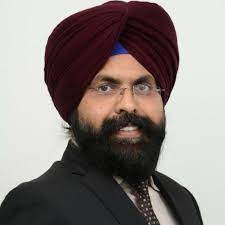
Taranbir Singh, a visionary entrepreneur hailing from Punjab, brings a wealth of experience from the…More

Taranbir Singh, a visionary entrepreneur hailing from Punjab, brings a wealth of experience from the rural banking divisions of India’s esteemed institutions, including HDFC and ING Vysya Bank. Amidst the challenges of the pandemic, he co-founded FAARMS, an innovative agricultural platform inspired by Amazon, tailored specifically for rural communities. This pioneering venture offers seamless access to a wide array of agricultural essentials such as seeds, agrochemicals, animal feed, and bio-fertilizers, while also bridging the gap between farmers and reputed brands, granting them direct access to the producers. Armed with a B.Tech in Agricultural Engineering from Punjab Agricultural University, Taranbir combines his passion for agriculture and technology to empower farmers and revolutionize the agricultural landscape in India, fostering sustainable growth and prosperity for rural communities.
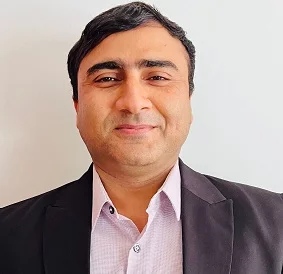
Kishor Kumar Jha is a distinguished entrepreneur and agriculturist hailing from Madhubani district i…More

Kishor Kumar Jha is a distinguished entrepreneur and agriculturist hailing from Madhubani district in Bihar, India. With a decade-long experience in the agriculture sector, he is the Founder & CEO of ERGOS, a groundbreaking agricultural venture. Prior to establishing ERGOS in early 2012, Kishor excelled as a Premier Banking professional at Barclays and showcased his managerial expertise at ICICI Bank. He also contributed significantly to ACC Limited, where he spearheaded rural marketing initiatives from the Motihari (Bihar) base.
Deeply rooted in agriculture through generations, Kishor acquired invaluable knowledge and skills from his agriculturist family. He holds a Masters in Business Administration (MBA) with specializations in Marketing and Foreign Trade from prestigious institutions like PUMBA and SIBM, alongside a Bachelor’s degree in Physics from Magadh University.
Known for his extensive expertise in agri-financing, agri-procurement, commodity trading, and warehousing, Kishor has played an instrumental role in transforming the agricultural landscape. He has collaborated with Indian and global corporate entities, making remarkable contributions to the procurement, stocking, and warehousing of agri-commodities. Furthermore, he has been actively engaged with farmer communities in Bihar and Karnataka, demonstrating his unwavering commitment to the agricultural movement.
In recognition of his outstanding entrepreneurial accomplishments, Kishor Kumar Jha was honored with the esteemed “Master Entrepreneurs- CNBC-South Zone” award by CNBC in November 2014. As the visionary leader of ERGOS, he continues to steer the company towards transformative growth, cementing his status as an industry expert and catalyst for positive change in the agriculture sector.
- 1st August
- 2:15 PM – 3:30 PM
- Indian Habitat Centre – Juniper Hall
- Hybrid
Change the Picture: Where You’re Born = What You Can be
“Research shows time and time again that it’s hard for people to escape the “location” drivers to social mobility. Villages with deficits in human development, infrastructure and services, lower job prospects and more entrenched structural barriers of gender, caste, class show much less intergenerational mobility. This session seeks to situate “location determinants” as development drivers within the Indian and global experiences. It will draw insights from past efforts and new multi-stakeholder engagement formats. It will explore the tailwinds of expanding public welfare support, incentives for private sector involvement and community aspirations.
Our pincode defines our opportunities, aspirations, and experiences in our lives. The deficits that exist in our villages make it disproportionality challenging for deprived rural communities to achieve intergenerational mobility. This session seeks to situate “”location determinants”” as development drivers, draws insights from past efforts, and new multi-stakeholder engagement formats to expand public welfare support, incentives for private sector involvement, and community aspirations.”
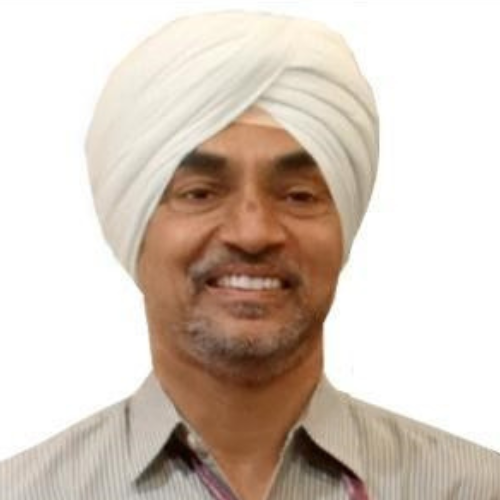
Charanjit Singh is an Indian Forest Service Officer of 1990 Batch – MP Cadre. He has extensive exp…More

Charanjit Singh is an Indian Forest Service Officer of 1990 Batch – MP Cadre. He has extensive experience as a civil servant. With a Masters of Philosophy in Strategic Studies from Madras University and Master of Science (Zoology) from Kurukshetra University, he is an environmentalist with vast administrative experience in Central Government and State Government functioning. Apart from serving in the Forest Department in the State of Madhya Pradesh, he has also served as Director in the Department of Land Resources, Govt. of India from 2008-2015. As Additional Secretary, he is presently heading the Rural Livelihood Division in the Ministry of Rural Development, Government of India with the responsibility to execute the vision of the Government to strengthen community institutions under National Rural Livelihood Mission (NRLM), so that they are efficiently managed and attain self-reliance. He has published articles on Land Acquisition, Land Titling, Land Records and Rural Development

Shrashtant is Chief Executive Officer at Development Alternatives, Executive Vice President at Devel…More

Shrashtant is Chief Executive Officer at Development Alternatives, Executive Vice President at Development Alternatives Group, and Chief Executive Officer at Technology and Action for Rural Advancement (TARA). He has been instrumental in the establishment of several social businesses within the Development Alternatives Group and currently leads the team that is incubating “TARAurja”, a renewable energy-based micro-utility business, and the Indian Micro Enterprises Development Foundation, a platform to deliver enterprise support services at scale. He has been with the Development Alternatives Group since 1988, providing research expertise, management capability, and strategic direction to teams working in the areas of Habitat, Renewable Energy, Water and Sanitation, Waste Recycling, and Livelihood Support Systems.
His work is at the forefront of designing multi-stakeholder-based approaches to the resolution of complex development challenges; establishing sustainable service delivery models that are directed towards local economic development, regeneration of the environment, and greater social equity. He is a Fellow of The Rockefeller Foundation’s Global Program on Social Innovation and a member of several advisory groups, including the LafargeHolcim Foundation for Sustainable Construction and Indo-German Expert Group on Green and Inclusive Economy.
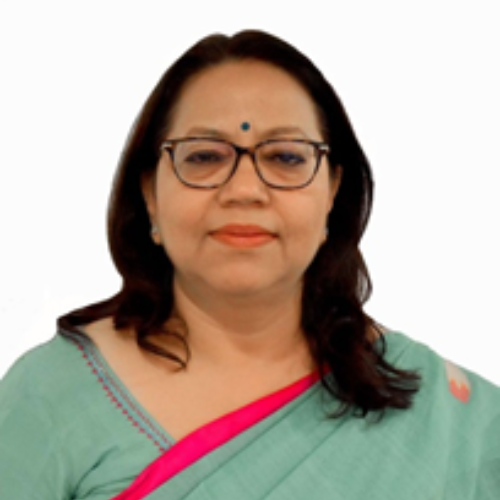
Ms. Alka Upadhyaya is currently serving as the Secretary, Department of Animal Husbandry & Dairy…More

Ms. Alka Upadhyaya is currently serving as the Secretary, Department of Animal Husbandry & Dairying (GOI). She has been an IAS officer since 1990. Earlier, she has served as Additional Secretary in the Ministry of Rural Development, Director General of the National Rural Infrastructure Development Agency, CEO of the National Rural Livelihood Mission, and Director General of the Council for Advancement of Peoples’ Action & Rural Technology. She has been instrumental in the implementation & policy making of various rural development programs – Pradhan Mantri Gram Sadak Yojana, IT platforms for geospatial planning of rural roads & corroborating pre- & post-construction status using remote sensing technology etc.
- 1st August
- 3:45 PM – 5:00 PM
- Indian Habitat Centre – Juniper Hall
- Hybrid
Opportunities for Rural Healthcare: Infra, Funding & Digital
There are great shifts in the Indian health landscape, thanks to a larger government focus on building more frontline infrastructure, privatization, digitization and socialization of healthcare practices. These interconnections create new opportunities and challenges for care-seeking, accessing and delivering a health care service. The ‘State of Healthcare in Rural India – 2023’ report from The Development Intelligence Unit (DIU) will be released in the session, presenting the realities and expectations of rural communities. This will set the context for exploring existing public health programs and various interventions to prompt shifts toward designing new practical approaches to public health.
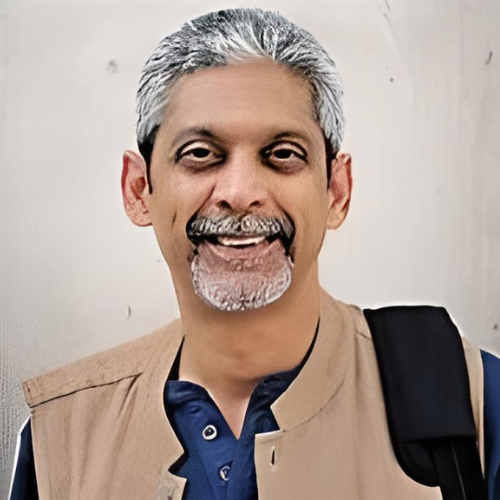
Vikram Patel is The Pershing Square Professor of Global Health in the Blavatnik Institute’s De…More

Vikram Patel is The Pershing Square Professor of Global Health in the Blavatnik Institute’s Department of Global Health and Social Medicine at Harvard Medical School. He co-leads the Department’s Mental Health for All lab and co-leads the GlobalMentalHealth@Harvard initiative. His work has focused on the burden of mental health problems across the life course, their association with social disadvantage, and the use of community resources for their prevention and treatment.
He is a co-founder of the Movement for Global Mental Health, the Centre for Global Mental Health (at the London School of Hygiene & Tropical Medicine), the Mental Health Innovations Network, and Sangath, an Indian NGO which won the WHO Public Health Champion of India prize. He is a Fellow of the UK’s Academy of Medical Sciences and has served on the Committee which drafted India’s first National Mental Health Policy and the WHO High Level Independent Commission for NCDs.
Patel has been awarded the Chalmers Medal (the Royal Society for Tropical Medicine and Hygiene, UK), the Sarnat Prize (the National Academy of Medicine, USA), the Pardes Humanitarian Prize (the Brain and Behaviour Research Foundation, USA), an Honorary OBE (the UK Government), the Posey Leadership Award (Austin College, USA) and the John Dirk Canada Gairdner Award in Global Health (the Canada Gairdner Foundation). He was listed in TIME Magazine’s 100 most influential persons of the year in 2015.

Neeraj Jain, is PATH’s country director for India, based in New Delhi. He has over 27 years of exp…More

Neeraj Jain, is PATH’s country director for India, based in New Delhi. He has over 27 years of experience in strengthening organizations and currently oversees all operations in the country and serves as a liaison between the office in India, PATH headquarters, donors, partners, and national-level ministries. His strengths lie in setting up new ventures, organizational development, and market development, and he has provided strategic leadership for change management in organizations across Asia and Europe.
- 2nd August
- 6:30 PM – 8:30 PM
- Quicksand Design Studio (Sanskriti Kendra), New Delhi
- Hybrid
Bharat : Accelerating Change with Design
Modern society and its economies, particularly the post-Marshall world view, can be shaped by forecast modelling of technology, the environment, production and consumption, learning and business processes. Many forces, often unknown, influence people’s choices and promote change in each other. The accepted conventions about producing and distributing standardized products and services to serve the “economy of scale” are being replaced by flexible, networked and tailored offerings in an “economy of choice.” Whether a government agency, hospital, auto manufacturer, publisher, investment fund, or a large NGO, organizations need greater flexibility, responsiveness and speed that design solutions provide. This session will explore advanced design frameworks and methods that enable people and NGOS, the private sector and government agencies to respond to complex opportunities and problems.
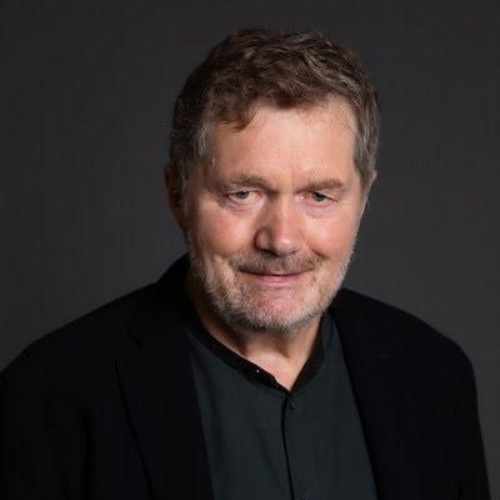
Patrick Whitney is a Professor in Residence at the Harvard T.H. Chan School of Public Health. He has…More

Patrick Whitney is a Professor in Residence at the Harvard T.H. Chan School of Public Health. He has published and lectured throughout the world about ways of making technological innovations more humane, the link between design and business strategy, and methods of designing interactive communications and products. His writing is focused on new frameworks of design that respond to three transformations: linking insights about user experience to business strategy, the shift from mass-production to flexible production, and the shift from national markets to markets that are both global and “markets of one.”
He was the principal investigator of several research projects at the Institute of Design, including “Global Companies in Local Markets,” “Design for the Base of the Pyramid,” and “Schools in the Digital Age.” He is a trustee of the Global Heritage Fund, which supports the restoration of heritage sites and local communities in the developing world.

Sonia Manchanda is Founding Partner at Spread, a global practice with a stellar reputation in Brand …More

Sonia Manchanda is Founding Partner at Spread, a global practice with a stellar reputation in Brand and Experience Design, building expertise in design-led media and technology, creating virtual immersive experiences. She has set up the Design Barn, India’s first independent facility to bridge the design + innovation gap.
She is a graduate of the National Institute of Design, Ahmedabad. She has been building creative organizations of repute and leading transdisciplinary project teams on massive transformational projects for governments and industry nationally and globally. Her intent is to spread design as a way to sense the shifts, to respond with creativity, optimism, and imagination.
In 2013, her independent open innovation and design research effort, the Dream: in Project was recognized as a global game changer by Metropolis Magazine.

André Nogueira, Ph.D., is the Co-Founder and Deputy Director of the Design Laboratory at the Harvar…More

André Nogueira, Ph.D., is the Co-Founder and Deputy Director of the Design Laboratory at the Harvard T.H. Chan School of Public Health, where he also serves as a Research Scientist and Instructor for the Department of Health Policy and Management. André investigates how design frameworks and methods can help improve the well-being of people, organizations, and the ecosystems within which they live. André was awarded in the first 40 under 40 Public Health Catalyst Awards by the Boston Public Health Congress. His work has been funded by diverse organizations, including the Bill and Melinda Gates Foundation, The Kresge Foundation, US Fish and Wildlife Services, Chicago Community Trust, USAID, and awarded by Fast Company and Core 77. Throughout his journey, André has led intrapreneurial initiatives in the corporate world, helping them build their sustainability competence, and in academic institutions in the US and Brazil, building design laboratories that expand their capacity to bridge theory and practice through cross-sectorial partnerships. In parallel to his work at Harvard, André also advises senior executives and leaders in the public sectors interested in building design capacity within their organizations.

Ayush Chauhan is one of the co-founders of Quicksand, a multi-disciplinary design and innovation con…More

Ayush Chauhan is one of the co-founders of Quicksand, a multi-disciplinary design and innovation consultancy working at the intersection of business, development, and culture in India. He promotes design for social development by connecting the best practices of design with development programs to address the pressing and complex issues of social equity, public health, and education. In this capacity, he has worked with organizations such as Unilever, World Bank and the Bill and Melinda Gates Foundation to design products and services that promote sustainability and quality of life for low-income communities. He is also part of the Board of Directors at William J. Clinton Foundation in India.
Besides being an entrepreneur, educator, mentor and having been granted the prestigious Yale World Fellowship in 2012, Ayush Chauhan is also the co-founder of UnBox Festival. This is the first interdisciplinary design, art, culture and tech festival in Delhi, bringing together leading voices from across the world for inspiration, debate and reflection. ‘Our belief that interdisciplinary, creative practices hold out a promise for more purposeful pursuit of growth — or at least one that is adequately balanced between the needs to create impact at a business, societal and personal level — is stronger than ever.’

Carlos Teixeira is the Charles L. Owen Professor in Design at the Institute of Design (ID), where he…More

Carlos Teixeira is the Charles L. Owen Professor in Design at the Institute of Design (ID), where he focuses on Systems Design and teaches graduate courses and advises doctoral students on the strategic use of design capabilities in complex spaces of innovation. He is also Director of the Action Labs and has his own ID Action Lab focused on Sustainable Solutions.
Carlos is the founder of ORGE Innovation Consulting, which advises global leaders in organizations on how to build the know-how to innovate through design capabilities and strategies.
Carlos received a doctorate in design from ID in 2002. Previous to his PhD, he received a master’s and bachelor’s degree in design from Pontifícia Universidade Católica in Rio de Janeiro, Brazil.
Before joining ID in 2016, Carlos served as a faculty member at Parsons School of Design in New York (2003–09), where he was instrumental in developing undergraduate and graduate programs in strategic design and transdisciplinary design. In 2014 he received the Distinguished Teaching Award by The New School for his innovative pedagogy in graduate design studios and projects.
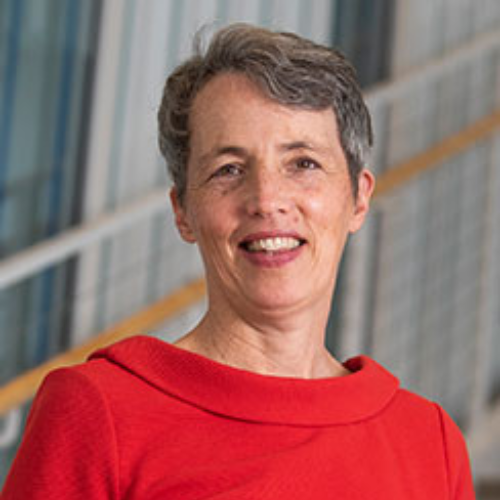
Sarah Szanton is the fifth dean of the Johns Hopkins School of Nursing. Dr. Szanton holds a joint ap…More

Sarah Szanton is the fifth dean of the Johns Hopkins School of Nursing.
Dr. Szanton holds a joint appointment in the Department of Health Policy and Management at the Johns Hopkins Bloomberg School of Public Health and the Johns Hopkins School of Medicine. Under Dr. Szanton’s leadership, the Johns Hopkins School of Nursing is ranked No. 1 nationally by U.S. News & World Report for its master’s and doctor of nursing practice programs and No. 3 globally by QS World University. In 2022, Dr. Szanton launched the impactful Policy Honors Program to help students develop advocacy skills in influencing policies that improve health. She is also chartering the creation of an innovative policy institute to advance health policy leadership and research for global nurse leaders and scientists. As an advocate for diversity, equity, and inclusion, Dr. Szanton helped shape the pioneering Pathway to PhD Nursing Scholars Program to accelerate diversity within PhD-prepared nurses, and she established the Term Professorship for Rising Faculty to fund distinguished faculty in their research and leadership. During her first year as Dean, Dr. Szanton was elected as a member of the National Academy of Medicine and named a Woman of Achievement by Business and Professional Women of Maryland. She is a Heinz Award winner for the Human Condition and a PBS Organization’s “Next Avenue Influencers in Aging.” In her early career, Dr. Szanton provided house calls to homebound elderly patients with low incomes in West Baltimore. To address the environmental challenges that were often as pressing as their health challenges, she co-developed a program called CAPABLE—now active in 23 states—involving a nurse, an occupational therapist, and a handyworker to help older adults age in community. Dr. Szanton maintains research on CAPABLE as well as on the impact of financial strain on health and the measurement of structural racism and resilience across the life course. As a researcher, Dr. Szanton has published more than 200 papers and been Principal Investigator on more than $20 million in grants from the National Institutes of Health, the Center for Medicare and Medicaid Services Innovation Center, the Robert Wood Johnson Foundation, and others. Dr. Szanton is core faculty at the Center on Aging and Health and Hopkins Center for Health Disparities Solutions and adjunct faculty with the Hopkins Center for Injury Research and Policy. A former health policy advocate, Dr. Szanton aims her research and publications toward improving health equity, aging in community, and policies related to health. She has also testified on Capitol Hill regarding the nursing workforce and faculty shortages.
- 3rd August
- 6:00 PM – 7:30 PM
- Virtual
Solving the Paradox: Need for Accelerated Growth Vs Falling Female Workforce
The decline in the female workforce is a much studied and talked about trend that continues to defy policy and civil society interventions. But there is more to understand about patriarchal restrictions, sexuality, workplace safety and mobility connected with the larger social and economic forces rooted in traditions and modernity. The session will seek to lay out the challenges, drawing from recent development efforts on structural challenges and deterrents, gender intentionality in public system programmes, the evolving public policy and market signals trends.
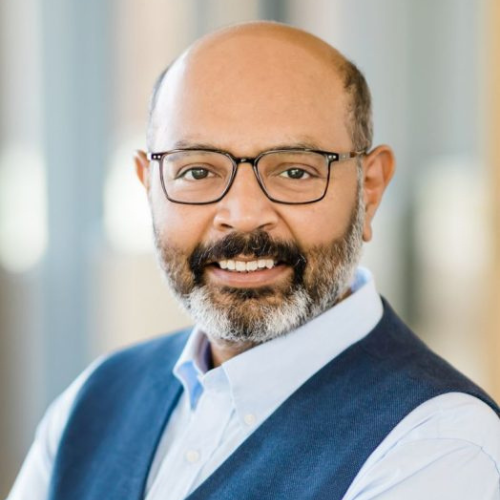
Anand Sinha is the Country Advisor for the David & Lucile Packard Foundation in India. He has ov…More

Anand Sinha is the Country Advisor for the David & Lucile Packard Foundation in India. He has over 23 years of experience in public health in India, specifically on reproductive, maternal and child health in India. He has been at the forefront of innovations in engaging the private sector in the delivery of health services to low income households and led some of India’s most successful market building initiatives for contraceptives and child health products. Before joining the Packard foundation he worked with the Gates foundation and led their Bihar initiative, and prior to that was the Country Manager for Abt Associates, a US based public policy consulting agency.

Michael Walton is Senior Lecturer in Public Policy at the Harvard Kennedy School, Senior Visiting Fe…More

Michael Walton is Senior Lecturer in Public Policy at the Harvard Kennedy School, Senior Visiting Fellow at the Centre for Policy Research, Delhi. He was VKRV Rao Chair Professor, Institute of Social and Economic Change, Bangalore for 2008 and 2009.
From 1980-2004, he worked at the World Bank, including extended periods on Indonesia and Zimbabwe, adviser to two Chief Economists, Regional Chief Economist for East Asia and the Pacific (1995-97), Director for Poverty Reduction (1997-2000), Chief Economist for Human Development (1999-2000) and Adviser for Poverty and Human Development in Latin America and the Caribbean (2000-2004). He was part of the management group for World Development Report 2000/2001: Attacking Poverty, and played a central role in the design of the poverty reduction strategy process for low-income countries. Prior to joining the World Bank, he worked for the Central Planning and Development Office for the Government of Lesotho, 1997-99.
He has been teaching at the Kennedy School since 2004, primarily in the MPA in International Development, and also in Executive Education on social enterprise. Since 2014 he has also worked with IMAGO Global Grassroots, a non-profit whose mission is to support grassroots organizations scale up, primarily with clients in India and Latin America, focusing on strategy, business plans, systems and impact assessment.
Major publications include: co-author of the World Bank’s World Development Report 1990 on poverty; director of World Development Report 1995 on labor; co-editor of Culture and Public Action (Stanford University Press, 2004); co-author of Inequality in Latin America and the Caribbean: Breaking with History? (World Bank, 2004); co-director of World Development Report 2005/06 on Equity and Development; and co-editor of No Growth without Equity? Inequality, Interests and Competition in Mexico. (Palgrave Macmillan and the World Bank, 2009).
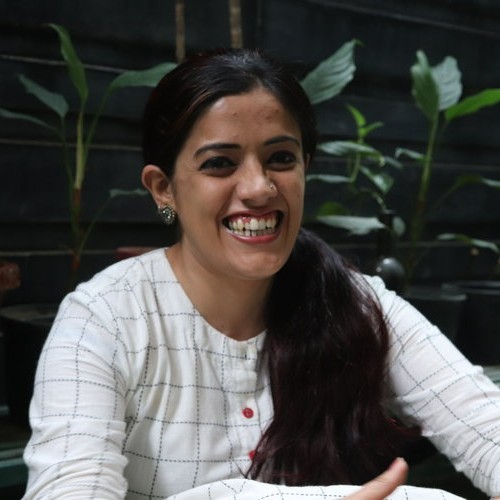
Prabhleen is a feminist development professional and activist, with more than eight years’ experie…More

Prabhleen is a feminist development professional and activist, with more than eight years’ experience with grassroots feminist organisation and advocacy research spaces. Her work involves training, research, policy advocacy, and programme management, with a focus on working on youth-based programs at community and at institutional levels. As the Executive Director at TYPF, Prabhleen provides overall leadership and direction to the organisation’s strategy, on ground work, partnerships and resourcing, as well as administration and financial management.
Prabhleen received her master’s degree in social work and her undergraduate degree in history from Delhi University. She has worked as a trainer for diverse groups and has been involved in creating advocacy material, youth toolkits, guidebooks, and standard protocols for practitioners and policy makers on safe public places, gender-based violence, and girls’ economic empowerment. She is a member of the Global UNiTE Youth Network and played a key role in designing, pilot testing, and regional training of the toolkit developed for young practitioners on gender-based violence. She has worked closely in partnership management, donor interface, quality assurance, and overall issue-based network and advocacy.
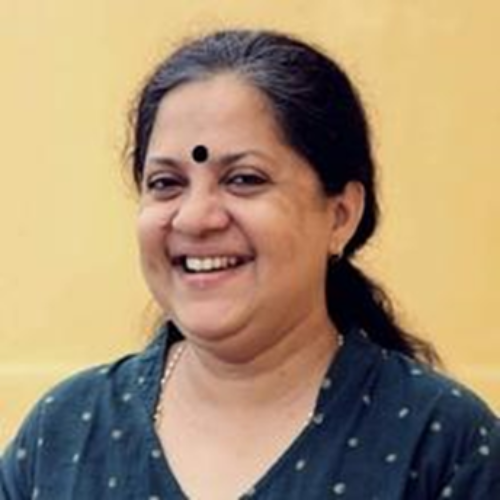
She teaches Women’s Studies at Department Women’s Studies at the University of Calicut, Kera…More

She teaches Women’s Studies at Department Women’s Studies at the University of Calicut, Kerala since 2005. Actively involved with women’s movement in Kerala from the early 1990s and associated with, ‘Sthree Padana Kendram’, the first women’s collective that raised cultural/social issues relating to the women’s question in Kerala.
She was State Programme Director of Kerala Mahila Samakhya Society, a national women empowerment project. She contributes articles, book reviews, columns and, presents television programs and a founder member of Women’s Imprint, a feminist publishing house. She is presently National General Secretary of Indian Association for Women’s Studies (IAWS), a professional association that aims to further women’s studies as an interdisciplinary academic field concerned with women, in different disciplines within and beyond educational institutions. She is a member of the Governing Body of Gender Park, Department of Women & Child Development, Government of Kerala.

She has been rendering support as National Resource Person on the gender domain in NRLM. Her company…More

She has been rendering support as National Resource Person on the gender domain in NRLM. Her company konkuwan was started in the year 2018 believing in the idea of building sustainable models to address the issues faced by those living in remote areas. The aim is in providing end to end solution to the farmers encouraging indigenous and traditional system of medicine.
Technology on the Right Side of Social Justice
- 4th August
- 10:00 AM – 11:45 AM
- Juniper Hall, India Habitat Center
- Hybrid
10:00 – Keynote Address – India’s techade opportunity – Rajeev Chandrasekhar, Hon’ble MoS, MEITY (TBC)
10:15 – 11:45 – Rural Transformation: Policy framework needed to harness the benefits brought by technological change
This session aims to explore the symbiotic relationship between technology-driven solutions and effective public policy frameworks in driving the rural renaissance, enabling equitable access to essential services and promoting inclusive socio-economic progress in rural communities. India’s rural landscape has long faced challenges in delivering essential services due to factors such as low population density and high transaction costs. Access to quality healthcare, education, financial services, and other essential facilities has remained limited, posing barriers to inclusive growth and development of rural communities. However, the advent of India’s many digital public infrastructure (India Stack and more) has the potential to revolutionize service delivery, transforming the lives of rural residents and ushering in a rural renaissance.
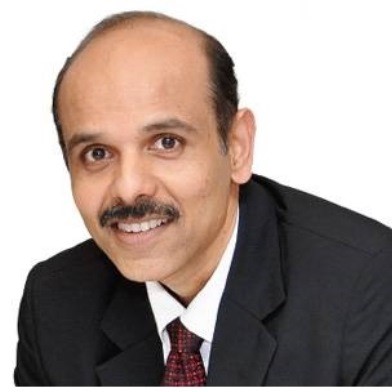
Balaji is a distinguished leader in the telecom and IT sector, currently serving as the Chief Regula…More

Balaji is a distinguished leader in the telecom and IT sector, currently serving as the Chief Regulatory and Corporate Affairs Officer at Vodafone Idea Limited. As a member of the Core Leadership Team (CLT), he played a pivotal role in successfully planning and executing the world’s largest telecom merger within a record two years. His responsibilities encompass Regulatory, Public Policy, and Government Relations activities, as well as Industry advocacy, Corporate Communications, Reputation Management, and CSR.
With over 30 years of experience in the industry, Balaji’s journey began in 1993, pioneering the telecom sector’s growth. He has held leadership positions in technology, devices companies, and telecom operators, including roles at Nokia India, Sony Mobile, TATA Group, AT&T, Ericsson, and Lucent Technologies.
Balaji is actively involved in several prestigious industry associations, currently serving as the Vice Chairperson of the Cellular Operators Association of India (COAI) and Chairman of the ASSOCHAM National Digital Communications Council. He is also a member of national councils for prominent industry chambers like CII, FICCI, ASSOCHAM, and All India Management Association.
Throughout his career, Balaji has been passionate about local manufacturing, R&D, and capacity development, advocating for initiatives in these areas. He has been instrumental in introducing cutting-edge technologies in India, generating employment opportunities, and contributing to the country’s economic growth. Balaji holds a degree in Electronics & Communications Engineering from IIT Roorkee and an MBA from IIM Ahmedabad, specializing in Marketing, Finance, and Strategy.
- 4th August
- 12:00 PM – 1:30 AM
- India Habitat Centre – Juniper Hall IHC
- Hybrid
Disruptive Technologies and how they can address wicked problems in rural India
Accelerating Sustainable Development Goals in the rapidly approaching 2030 Agenda
The session aims to explore the role of disruptive technologies like blockchain, AI and ML, 3D printing, 5G technology, etc in addressing complex social challenges in India. The panellists will discuss various aspects of technology deployment in an underdeveloped market like India, its impact on the social and for-profit sectors, challenges in adapting technology to social issues, the importance of data architecture, the role of philanthropy funds in supporting artificial intelligence (AI), and the influence of technology on human behaviour and cultural context in designing development programs.
The discussion will revolve around the potential of technology, the role of philanthropy in prioritizing and supporting these solutions, and how they can contribute accelerate the achievement of the Sustainable Development Goals (SDGs) in India.
Sunita Nadhamuni is a remarkable global leader in the field of social innovation and technology-enab…More
Sunita Nadhamuni is a remarkable global leader in the field of social innovation and technology-enabled programs for societal impact. Armed with a master’s degree in electrical engineering and computer science from Rensselaer Polytechnic Institute, she embarked on a journey to give back to her homeland, India. Starting as a volunteer, Sunita founded an organization focused on raising funds for rural development, igniting her passion for addressing social issues.
Over the years, Sunita has made significant contributions to various development sectors in India, including education, community water and sanitation projects, and healthcare. Her dedication and expertise eventually led her to become the head of global social innovation at Dell Technologies, where she spearheaded groundbreaking initiatives like Digital LifeCare, revolutionizing India’s primary healthcare system.
Beyond her professional accomplishments, Sunita is actively involved in several impactful ventures. She serves as the Chairperson of Arghyam, a foundation working towards water security through community-based intervention. Additionally, she is part of the Advisory Committee for Atal Community Innovation Centers, promoting innovation and entrepreneurship in underserved regions of India.
With over a decade of experience in the IT industry from Silicon Valley and an equivalent tenure in India, Sunita has honed her skills in driving positive change through technology and collaboration. Her efforts have garnered recognition, including her role as Dell’s representative for the World Economic Forum’s EDISON Alliance.

Abhishant Pant is a prominent Mumbai-based Fintech expert with over a decade of hands-on experience …More

Abhishant Pant is a prominent Mumbai-based Fintech expert with over a decade of hands-on experience in the payments landscape. As a founding member of m-pesa in India, he has been at the forefront of revolutionizing financial technology in the country. In a unique endeavor to understand the challenges and catalysts in Fintech’s journey, he embarked on a cashless journey on 13th March 2016, traveling the length and breadth of India, and even conducting a comparative study with markets in Sweden, Singapore, and Bangladesh.
Abhishant is renowned as a Fintech evangelist and has shared his insights and expertise at prestigious platforms such as the UN-G20, TEDx Talks, NUS, IIM, and IITs. He actively mentors through incubators like Barclays Rise and Zone Startups, contributing to the growth and development of the Fintech ecosystem. His leadership positions in the payments domain include roles with Visa, M-Pesa, and HSBC, showcasing his vast expertise in various aspects of financial technology.
As a prolific writer on Fintech landscape opportunities and challenges, Abhishant’s contributions have been recognized on a global level. He has received accolades like being named among the TOP100 Fintech Professionals in Asia by Next Money. Additionally, he serves in advisory capacities and faculty roles with prestigious institutions like SP Jain Global Management Institute, IIM-Bangalore, and IIM-Lucknow, further solidifying his position as a thought leader in the Fintech industry.
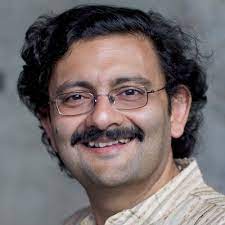
Anirban Mukerji is a Senior Manager within Qualcomm’s Government Affairs department, based in …More

Anirban Mukerji is a Senior Manager within Qualcomm’s Government Affairs department, based in New Delhi, India. In his current role, he is responsible for overseeing Qualcomm’s Wireless Reach™ initiatives in India and South Asia. Wireless Reach™ is a strategic initiative that aims to bring advanced wireless technologies to underserved communities worldwide, with a focus on fostering entrepreneurship, enhancing public safety, improving healthcare delivery, empowering education, and promoting environmental sustainability.
With over 25 years of diverse experience in business, government, and information technology (IT), Anirban has been at the forefront of implementing transformative projects. Before joining Qualcomm in October 2012, he played key roles in significant e-Governance initiatives for the Ministry of Electronics and Information Technology and the State Government of Karnataka. His business sector experience includes positions at IBM and HP, where he facilitated strategic partnerships and innovative ideas for technology-based socio-economic development in rural communities.
Anirban holds a Postgraduate Diploma in rural management from the Institute of Rural Management, Anand, and a Bachelor’s of Science degree in mathematics from St. Stephen’s College, University of Delhi. Through his work at Qualcomm, Anirban continues to drive the adoption of wireless technologies, positively impacting the lives of millions of people in underserved communities.
- 5th August
- 4:00 PM – 7:30 PM
- Dilli Haat
- Hybrid
Rural Renaissance Concert – Naya Savera and Dashugs
Village Square Media Fellows have travelled the length of breadth of our villages, finding stories that paint a picture of vibrancy and energy but also of the challenges of rural life. This book launch at the lively venue of Dilli Haat highlights the work of Village Square’s nine exceptional aspiring journalists who give us a real feel of what is happening in rural India and why even the sky is not a limit. The launch will be made even better by including some of the biggest rural media influencers in India, who will also help us explore the social world of #ICYMI and #FOMO that’s impacting the daily life of rural Indians.
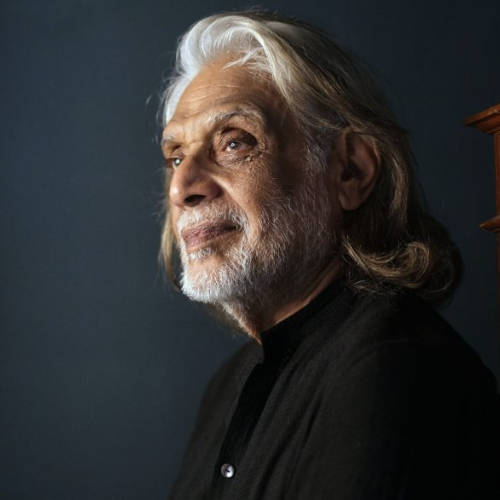
Muzaffar Ali was born in Lucknow in 1944. The eldest son of Raja Syed Sajid Husain Ali, the ruling p…More

Muzaffar Ali was born in Lucknow in 1944. The eldest son of Raja Syed Sajid Husain Ali, the ruling prince of the principality of Kotwara in Awadh, Muzaffar Ali attended La Martiniere, Lucknow, and graduated in science from Aligarh Muslim University. Ali worked in advertising before turning to film. His first films were Gaman (1978) and Umrao Jaan (1981), and he also made and starred in the TV series Jaan-e-Alam. He later became a fashion designer, creating a fashion label with his wife, Meera, in 1990. He will be joining us on 5th August to have a conversation on “How India bridges the gap between urban and rural population through arts and culture” and also will be launching the Village Square’s first captivating coffee table book.
- 5th August
- 4:00 PM – 7:30 PM
- Dilli Haat
- Hybrid
Many Corners of Village Square – Media Fellows Book Launch
Village Square Media Fellows have travelled the length of breadth of our villages, finding stories that paint a picture of vibrancy and energy but also of the challenges of rural life. This book launch at the lively venue of Dilli Haat highlights the work of Village Square’s nine exceptional aspiring journalists who give us a real feel of what is happening in rural India and why even the sky is not a limit. The launch will be made even better by including some of the biggest rural media influencers in India, who will also help us explore the social world of #ICYMI and #FOMO that’s impacting the daily life of rural Indians.

Muzaffar Ali was born in Lucknow in 1944. The eldest son of Raja Syed Sajid Husain Ali, the ruling p…More

Muzaffar Ali was born in Lucknow in 1944. The eldest son of Raja Syed Sajid Husain Ali, the ruling prince of the principality of Kotwara in Awadh, Muzaffar Ali attended La Martiniere, Lucknow, and graduated in science from Aligarh Muslim University. Ali worked in advertising before turning to film. His first films were Gaman (1978) and Umrao Jaan (1981), and he also made and starred in the TV series Jaan-e-Alam. He later became a fashion designer, creating a fashion label with his wife, Meera, in 1990. He will be joining us on 5th August to have a conversation on “How India bridges the gap between urban and rural population through arts and culture” and also will be launching the Village Square’s first captivating coffee table book.

Muzaffar Ali was born in Lucknow in 1944. The eldest son of Raja Syed Sajid Husain Ali, the ruling p…More

Muzaffar Ali was born in Lucknow in 1944. The eldest son of Raja Syed Sajid Husain Ali, the ruling prince of the principality of Kotwara in Awadh, Muzaffar Ali attended La Martiniere, Lucknow, and graduated in science from Aligarh Muslim University. Ali worked in advertising before turning to film. His first films were Gaman (1978) and Umrao Jaan (1981), and he also made and starred in the TV series Jaan-e-Alam. He later became a fashion designer, creating a fashion label with his wife, Meera, in 1990. He will be joining us on 5th August to have a conversation on “How India bridges the gap between urban and rural population through arts and culture” and also will be launching the Village Square’s first captivating coffee table book.
- 6th August
- 12:00 PM – 2:30 PM
- Dilli Haat
- Hybrid via Instagram Live
Bharat Ek Kahani | Culture and Cuisines from Rural India
India’s exceptional cuisine is known the world over for its vivacity, colour and lip-smacking flavour. But some of its regional delights are yet to be discovered by the hungry masses. So experience the known and unknown delicacies at the Bharat Ek Kahani Corner brought together with National Street Vendors Association of India and Delhi’s premier organic chain, the Altitude Store.

Muzaffar Ali was born in Lucknow in 1944. The eldest son of Raja Syed Sajid Husain Ali, the ruling p…More

Muzaffar Ali was born in Lucknow in 1944. The eldest son of Raja Syed Sajid Husain Ali, the ruling prince of the principality of Kotwara in Awadh, Muzaffar Ali attended La Martiniere, Lucknow, and graduated in science from Aligarh Muslim University. Ali worked in advertising before turning to film. His first films were Gaman (1978) and Umrao Jaan (1981), and he also made and starred in the TV series Jaan-e-Alam. He later became a fashion designer, creating a fashion label with his wife, Meera, in 1990. He will be joining us on 5th August to have a conversation on “How India bridges the gap between urban and rural population through arts and culture” and also will be launching the Village Square’s first captivating coffee table book.
- 7th August
- 6:00 PM – 7:30 PM
- Virtual
Habitat for India @ 2047
This session explores the complex and evolving dynamics of the rural-urban transition in India and its impact on rural habitats. With over fifty percent of rural India’s output coming from outside of cultivation, it resembles a “sunken peasant habitat,” interacting with fast changing economic, social and environmental factors. Experts will help us examine how the increased demand for human development, civic services and improved amenities is changing how rural India lives. We will explore the disintegration of the traditional organizing principles of the “village world” across space, time, tradition and society, as well as its impact on spatial planning, habitat delivery and civic amenities. The discussion will sketch out this transformation and the “future rural habitat.”
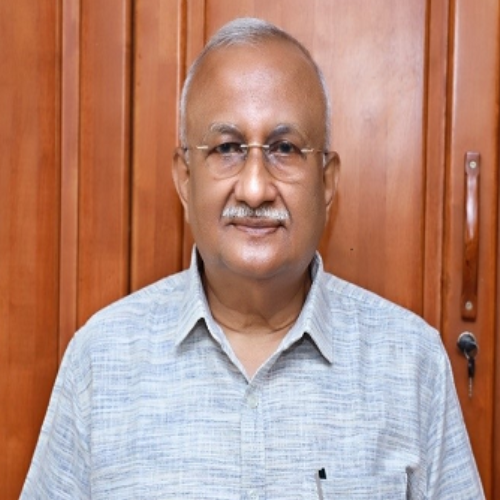
Mr. Vijayanand is an officer of the 1981 batch of the IAS, belonging to the Kerala cadre. Almost his…More

Mr. Vijayanand is an officer of the 1981 batch of the IAS, belonging to the Kerala cadre. Almost his entire career was in Rural Development, Local Governance, and Decentralized Planning. He coordinated Kerala’s People’s Planning for fifteen years. During this period he nurtured Kudumbashree, a highly successful SHG programme in the country and was active in moulding the Kerala Institute of Local Administration (KILA) into an institution of excellence in the training of Elected Representatives. As Secretary of the Ministry of Panchayati Raj during 2015-16, he was instrumental in introducing the Gram Panchayat Development Plan (GPDP) in the country.
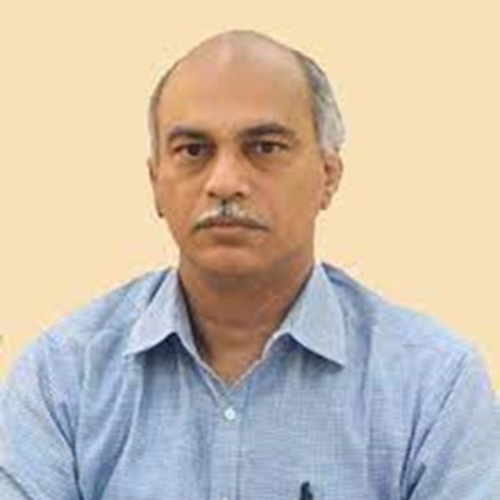
Prof. Dr. N. SRIDHARAN was former Director at School of Planning and Architecture, Bhopal and New De…More

Prof. Dr. N. SRIDHARAN was former Director at School of Planning and Architecture, Bhopal and New Delhi. He has also served as Chairperson of the Educational Standing Committee of Institute of Town Planners’ India and one of the Vice-Presidents of Regional Science Association, India. Dr. Sridharan has more than 33 years of experience in the field of Urban and Regional Planning. He has contributed significantly through his work in the fields of Urban Governance & finance, Peri-Urban Development, rural development and Spatial Data Infrastructure.
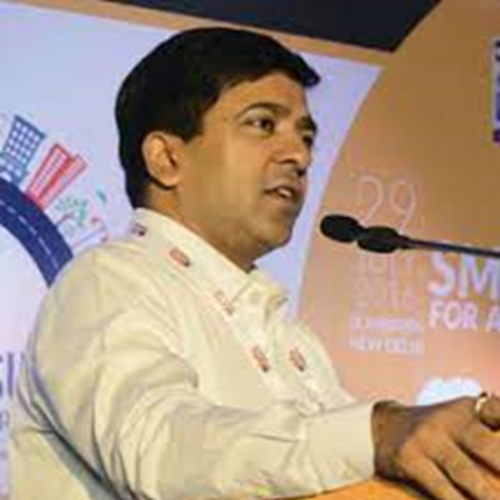
Dr. Ashish Kumar Goel has graduated from IIT Delhi and is an IAS of UP cadre, batch 1995. He has ser…More

Dr. Ashish Kumar Goel has graduated from IIT Delhi and is an IAS of UP cadre, batch 1995. He has served as Additional Secretary in the Ministry of Rural Development and also in the State of Uttara Pradesh as Secretary, Department of Rural Development. Through his work, he has contributed in policies for rural development and Panchayati raj, especially in the field of sustainability and inclusive growth in rural areas.
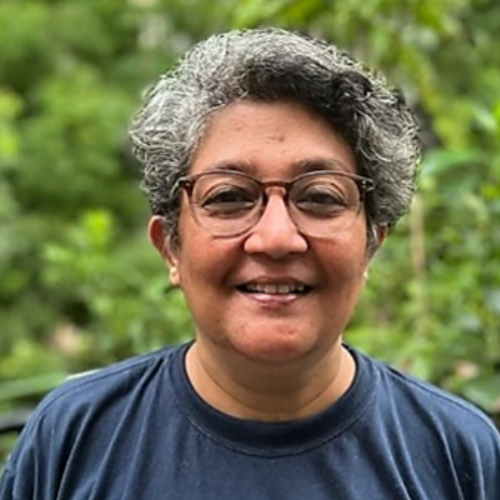
“Zeenat Niazi, Sr. vice-president and chief knowledge officer of the Development Alternatives …More

“Zeenat Niazi, Sr. vice-president and chief knowledge officer of the Development Alternatives Group, where she guides public policy and action research focused on local and national strategies for sustainable development, climate change, and natural resource management. Trained as an architect with a specialization in rural housing and habitat in the global South, her core competence is in building resilience in human settlements through Sustainable Consumption and Production (SCP) strategies, especially green and inclusive circular economy models. She is registered as a Ph.D. scholar at the TERI School of Advanced Studies, New Delhi India and also teaches on Sustainability at the Anant National University, Ahmedabad, India, and is also a guest lecturer at the School of Planning and Architecture, New Delhi and the Nirma University, Ahmedabad. She is currently a member of the Multi-stakeholder Advisory Committee (MAC) of the Sustainable Buildings and Construction Programme of UN’s One Planet Network, member of the Steering Committee of the Green Economy Coalition (GEC) in India and of the Strategic Steering Committee of UNEP PAGE Programme in India. She is part of the Task Force on Green and Inclusive Circular Economy for Angul District in the State of Orissa, India, chair of the Committee on Rural Housing and member – CED 51- committee on prefabricated materials of the Bureau of Indian Standards. In the past, she has been a founding member and Co-Chair of the Board of the Climate Action Network South Asia, member of the Task force of the Rural Housing, Ministry of Rural Development, Government of India and a member of the Sub-Committee on Construction and Demolition Waste Management in Urban Areas of the NITI Aayog, Government of India.”
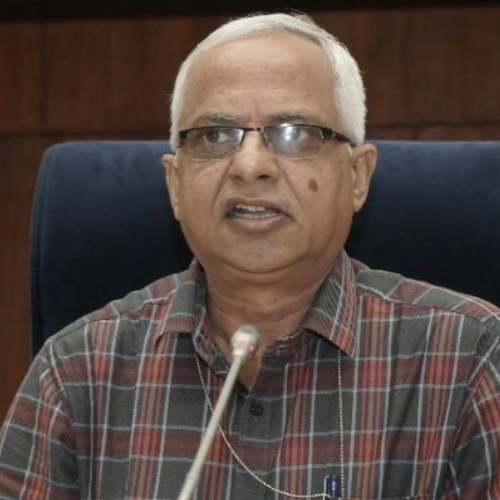
Shri Sunil Kumar is an IAS officer of batch 1987 from the UP cadre and is currently serving as Secre…More

Shri Sunil Kumar is an IAS officer of batch 1987 from the UP cadre and is currently serving as Secretary, Ministry of Panchayati raj. He has been instrumental in strengthen the democratic governance processes, empowering PRIs, bringing participation, transparency, accountability in the PRI system. He has contributed in the IT governance aspects in improved planning, localization of Sustainable Development Goals, Gram Panchayat Development Planning, Gram Swaraj Movement, integration of Public Finance Management System across Panchayats etc.

- 8th August
- 10:00 AM – 10:30 AM
- India Habitat Centre – Tamarind Hall
- Hybrid
Colloquy Finale Opening

Arun Maira has an unusual combination of experience as a hands-on leader in the business, public, an…More

Arun Maira has an unusual combination of experience as a hands-on leader in the business, public, and social sectors, as well as a consultant to leaders. He is a thought leader on subjects of leadership and systems transformation. He has written several books on institutional transformation and the future of India, including ‘A Billion Fireflies:’ Critical Conversations to Shape a New Post-Pandemic World; ‘Discordant Democrats:’ Five Steps to Consensus, ‘Transforming Systems:’ Why the World needs a New Ethical Toolkit; and ‘Listening for Well-Being:’ Conversations with People Not Like Us. He has produced far-sighted scenarios for the future of India with citizens’ participation in 2000, 2007, and 2013. The insights from those scenarios are becoming very relevant today. Arun was a member of India’s Planning Commission from 2009-14, before which he was Chairman of the Boston Consulting Group India, and previously had worked with the Tata Group in India and abroad for 25 years.

Ms Rashmi Shukla Sharma joined the Indian Administrative Service (IAS) in 1984. She is an alumnus of…More

Ms Rashmi Shukla Sharma joined the Indian Administrative Service (IAS) in 1984. She is an alumnus of Delhi and Princeton universities from where she earned M.Phil. (Psychology) and a Master’s degree in Public Administration, respectively. She has held senior positions in the Union Government and Government of Madhya Pradesh, apart from various field-level posts in the early part of her career. In the course of her service, she acquired in-depth knowledge and experience in School Education and Local Government. She is the author (with Vimala Ramachandran) of The Elementary Education System in India: A Field Based Investigation of Institutional Structures, Processes and Dynamics (2009), Routledge Press, New Delhi, and Local Government in India: Policy and Practice (2009), Manohar Publications, New Delhi, besides many papers the Economic and Political Weekly and elsewhere. She retired early from government service to take up research and teaching related to governance and public policy. She is also a board member of TRIF.

Narendra Kailash Mujhalda, a young and visionary leader, holds the esteemed position of Sarpanch in …More

Narendra Kailash Mujhalda, a young and visionary leader, holds the esteemed position of Sarpanch in Kharjana. His comprehensive approach and dedication have paved the way for transformative changes in the Gram Panchayat.
Narendra’s initial efforts were focused on enhancing the quality of education and essential facilities in schools. He achieved an impressive 90% student registration and continuous follow-up in primary and secondary schools, promoting awareness about education and filling vacant classrooms. Additionally, he initiated the distribution and consumption of Take-Home Rations (THR) to improve the services of the Anganwadi Centers.
Addressing local conflicts was another significant challenge, and Narendra took the lead in ensuring that the Panchayat became the primary forum for resolving grievances and conflicts. With the establishment of Shanti Samiti under the PESA Act, many cases are now resolved within the Panchayat, fostering peace and harmony in the community.
Recognizing the importance of collaboration, Narendra ensured the inclusion of Self-Help Groups (SHGs) in the development of the Gram Panchayat. Regular SHG meetings and their active participation have contributed to the overall progress of the GP.
As an aspirational leader, Narendra has a clear vision for the future of Kharjana. He plans to address rumors spread within the Panchayat and instill faith in its practices and processes. He envisions the Gram Sabha as the nodal point for addressing individual and collective needs, encouraging greater participation from villagers. Moreover, he aims to enhance health and education facilities in the Panchayat, further improving the well-being of the community.
Drawing inspiration from the model village Hivrebazar, Narendra Kailash Mujhalda strives to turn Kharjana into a thriving and progressive community, setting an example for other regions to follow. With his dedication, passion, and collaborative spirit, he is determined to bring about positive and lasting change in the Gram Panchayat during his tenure as Sarpanch.
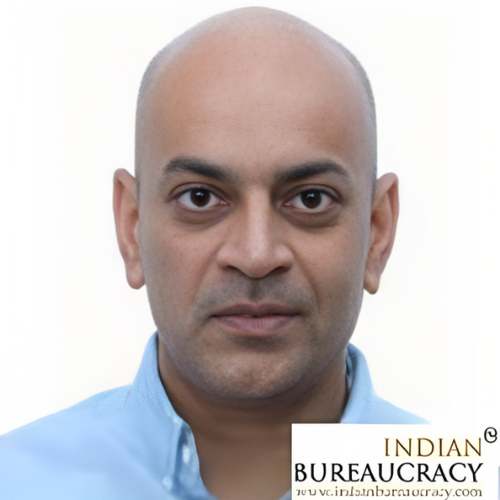
Shri Vikas Anand ji is an esteemed civil servant belonging to the Indian Administrative Service (IAS…More

Shri Vikas Anand ji is an esteemed civil servant belonging to the Indian Administrative Service (IAS) 2002 batch, known for his dedicated service and commitment to public welfare. Presently, he holds the prestigious position of Joint Secretary at the Ministry of Panchayati Raj, where he plays a pivotal role in shaping policies that empower and strengthen grassroots governance in India.
Education has been a cornerstone of his illustrious career. Shri Vikas Anand ji pursued his higher education at renowned institutions, showcasing his academic prowess and thirst for knowledge. He earned a Master’s degree in Technology from the esteemed Indian Institute of Technology (IIT) Delhi, where he honed his technical acumen and problem-solving skills.
Seeking a broader understanding of governance and public policy, he furthered his education with a second master’s degree from the distinguished John F. Kennedy School of Government at Harvard University. This educational experience at one of the world’s leading universities provided him with invaluable insights into global governance practices and policy formulation.
Throughout his tenure as a civil servant, Shri Vikas Anand ji has demonstrated exemplary leadership, innovative thinking, and a deep sense of commitment to public service. His contributions to the Ministry of Panchayati Raj have been instrumental in advancing decentralization and empowering local self-government institutions, promoting equitable development and grassroots participation.
Shri Vikas Anand ji’s unwavering dedication to his duties and his passion for bringing positive change to society have earned him respect and admiration from colleagues and citizens alike. With his vast knowledge, administrative expertise, and strong moral compass, he continues to contribute significantly to the progress and betterment of the nation.
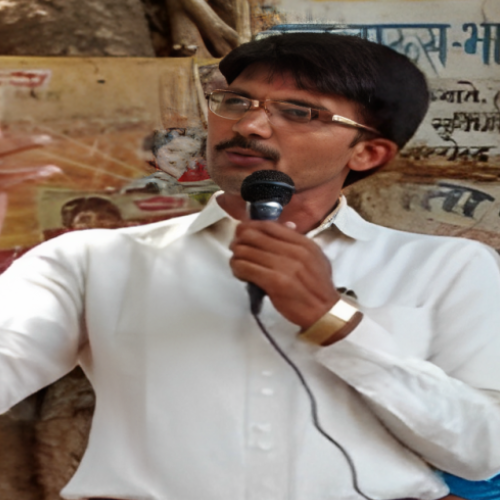
Rajesh Gupta is a highly dedicated and accomplished education professional, serving as the Block Res…More

Rajesh Gupta is a highly dedicated and accomplished education professional, serving as the Block Resource Coordinator at the Block Education Centre in Rajpur. With an impressive academic background that includes a B.Sc. in Mathematics, an M.A. in History, and a B.Ed., Rajesh possesses a unique blend of analytical and historical knowledge.
Throughout his career, Rajesh has made significant contributions to the education sector. In 2014, he spearheaded the School Chalo Abhiyaan, an intensive awareness campaign across 54 villages in the Block, leading to a remarkable surge in school enrollments. Recognizing the importance of parental involvement, he organized BCC activities and choupal meetings to support children’s academic journeys.
Rajesh’s passion for creating exceptional learning environments also led him to coordinate the ‘हमारी शाला सबसे अच्छी’ campaign and collaborate with the Room to Read NGO for a ‘use of library in the schools’ initiative. Moreover, he actively engaged with various Civil Society Organizations, including TRIF, to enhance School Management Committee (SMC) meetings and prioritize education in village-level planning and development.
With his unwavering commitment to educational advancement and community welfare, Rajesh Gupta continues to be a driving force in shaping the future of education in Block Rajpur.
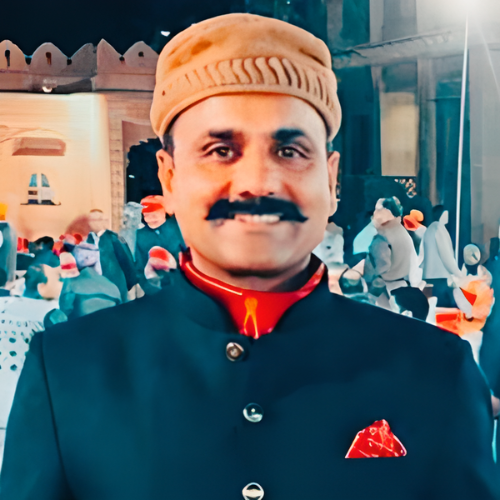
Chandra Pratap Singh Rajawat is an esteemed socio-political practitioner, researcher, and elected re…More

Chandra Pratap Singh Rajawat is an esteemed socio-political practitioner, researcher, and elected representative with a remarkable 24 years of experience in managing diverse roles and responsibilities in Local Governance, Rural Development, and Stakeholder Management.
Throughout his career, Chandra Pratap has been involved in various impactful projects and initiatives. He managed the CSR Midstream Pipeline and Offshore Operations for Vedanta, Cairn Oil & Gas, a joint venture with ONGC & GoI, overseeing CSR operations in Rajasthan, Gujarat, and Tamilnadu.
He also served as the State Coordinator for Microfinance & Enterprise Development under the Ministry of Panchayat & Rural Development of GoMP, contributing to the Madhya Pradesh Rural Livelihoods Project.
Chandra Pratap’s expertise extends to his previous role as a District Project Officer in the Madhya Pradesh Rural Livelihoods Project, where he made significant strides in rural development.
Before that, he worked as a Specialist in Social Development with Gramin Vikas Trust (KRIBHCO), funded by DFID, UK, focusing on livelihood enhancement programs in Madhya Pradesh and Gujarat.
His dedication and commitment to community development are evident from his work as a Community Organizer for KRIBHCO’s Indo British Rainfed Farming Project, emphasizing participatory sustainable livelihoods development in Gujarat.
As the Sarpanch of Gram Panchayat Sanwansi, Chandra Pratap envisions re-establishing the credibility of the GP as an effective local governance institution. He aims to lead the Gram Panchayat as a Water Surplus entity through appropriate water resource management and stimulate economic activities and opportunities through eco-tourism.
Chandra Pratap is determined to make the Gram Panchayat self-sustainable through asset generation while ensuring proper service delivery through effective coordination and close monitoring. His vision also encompasses achieving 100% coverage of Social Security schemes and promoting health and hygiene for the welfare of the community.

Laxmi Suresh Khanna is a trailblazing community member, serving as an Elected Panch in Nandgaon Vill…More

Laxmi Suresh Khanna is a trailblazing community member, serving as an Elected Panch in Nandgaon Village, Rajpur Block, Barwani District, MP. In a male-dominant sector of politics, Laxmi, along with 10 other determined female members, established a powerful political identity in her Gram Panchayat (GP). Breaking barriers and defying traditional norms, they achieved an extraordinary dream, proving that ordinary women possess great strength.
Despite her significant achievements, Laxmi faced numerous challenges in her role. The traditional perception of a male leader leading politically posed hurdles, even though the community elected her for the position. While they have gained acceptance through votes, establishing a GP mainly run by women remains a work in progress. Engaging all women voters in Gram Panchayat work also poses a challenge.
To overcome these challenges, Laxmi became a governance change vector. Her competence in GP and standing committee work, as well as her proficiency in the GPDP process and tracking, have been instrumental in driving positive change. She mobilized women for Gram Sabha meetings and educated them about their rights, ensuring their active participation in the GP process. Regular GP meetings and transparency became the norm with women actively involved.
Laxmi’s vision in her present role is to continue empowering her community and promoting education for girls. She played a pivotal role in forming the standing committee and now shares her governance knowledge with other members. They are advocating for schools up to the 12th grade in their village, particularly for girls to have access to continued education. Additionally, she aims to establish learning centers for other school dropouts, ensuring education opportunities for all.
Furthermore, Laxmi aspires to provide essential health facilities to the villagers through a sub-center, contributing to the overall welfare of the community. In alignment with the current year’s GPDP, she remains committed to working towards the betterment of her community, leaving a lasting impact on the lives of those she serves.
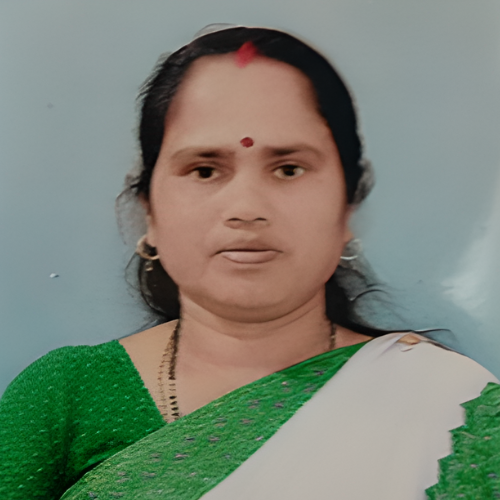
Sarita Devi is a dedicated Sahiya Sathi, holding a crucial position in her community at Horhap Villa…More

Sarita Devi is a dedicated Sahiya Sathi, holding a crucial position in her community at Horhap Village, Namkum Block, Ranchi, Jharkhand. Her achievements exemplify her unwavering commitment to the welfare of women, children, and the elderly in her village.
One of her most notable accomplishments is saving the lives of women and children during Institutional Delivery. She demonstrated exceptional bravery and quick thinking when she provided life-saving mouth-to-mouth rescue breathing to a newborn in the absence of a Skilled Birth Attendant.
Beyond maternal and child health, Sarita has worked extensively for the elderly in her village. Her efforts have resulted in numerous elderly villagers gaining access to old age pensions and ration cards, bringing them much-needed support and security.
However, her role as a care provider also comes with challenges. Ensuring complete ANC (Antenatal Care) for all pregnant women and complete immunization for children remains a persistent challenge, as some cases face delays due to household issues. Additionally, handling extreme cases of diarrhea outbreaks in the village and obtaining timely referral support can be daunting. Moreover, she faces resistance from certain individuals in the community, making it challenging to navigate such situations.
Despite these hurdles, Sarita exhibits resilience and determination. She leads by example in her household, demonstrating healthy habits to address anemia and malnutrition in women. Instead of being discouraged by unsupportive individuals, she chooses to counsel and engage them to promote positive change.
In her present role, Sarita envisions a village where no one goes hungry and all essential services are accessible to every person. She advocates for extending benefits like PDS, pensions, and healthcare to everyone, aiming to break the cycle of poverty in her community. She encourages people to be productive and not waste their time, fostering a sense of empowerment and self-reliance among the villagers.
Sarita Devi’s unwavering dedication and compassion have made her a vital asset to her community, inspiring others to work together towards a brighter and more inclusive future.
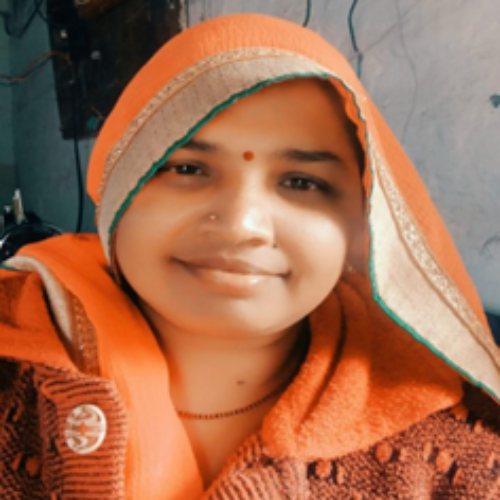
Jasma Kanoje is a proactive and influential community member, deeply committed to empowering women i…More

Jasma Kanoje is a proactive and influential community member, deeply committed to empowering women in her region. Recognizing the challenges faced by women, she actively voiced their concerns in Gramsabha, Village Organization (VO), and the Community Livelihood Forum (CLF). Her dedication and leadership qualities earned her the position of CLF Adhyakshy for Jeevan Jyoti CLF, representing 16 villages in the Palsud cluster.
Under Jasma’s guidance, Jeevan Jyoti CLF made significant strides towards women’s empowerment. Producer Groups were established in each village, engaging in public procurement and microbusiness through processing units. The CLF also shared extraordinary success stories in health and education, contributing to the development of the Gram Panchayat Development Plan (GPDP) and ensuring the saturation of government schemes.
However, the journey wasn’t without challenges. Acceptance from the community towards Self-Help Groups (SHGs) and their work posed a significant obstacle. Jasma tackled this by tirelessly visiting all 16 villages, creating awareness about SHGs, and gradually increasing acceptance. The allocation of loans to needy members further helped overcome resistance from families. As a CLF, they also advocate for their demands by sending letters to various government departments. Currently, they are striving to establish a CLF Bhavan and are actively approaching concerned authorities for support.
In her present role, Jasma Kanoje envisions creating business opportunities to increase the income of all women in her cluster. Her commitment to women’s empowerment, combined with her strategic approach, continues to inspire positive change in the community. Through her efforts, she seeks to uplift the lives of women and foster sustainable economic growth, making a lasting impact on the entire region.
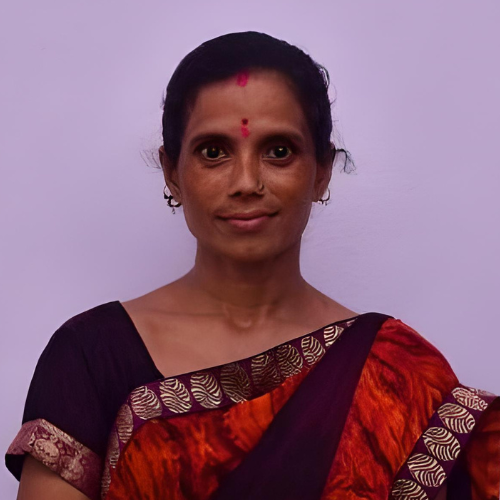
Gayatri Solanki is a dedicated Anganwadi Worker (AWW) in Singhana, Manawar, Dhar district, Madhya Pr…More

Gayatri Solanki is a dedicated Anganwadi Worker (AWW) in Singhana, Manawar, Dhar district, Madhya Pradesh. Over the span of 16 years, she has achieved remarkable milestones and positively impacted the lives of many in her community.
In the early years of her career, Gayatri faced challenges in organizing Village Health, Sanitation, and Nutrition Days (VHSNDs) due to a lack of infrastructure. However, her persistent efforts and regular recommendations to supervisors and officials led to her obtaining a separate room in the ICDS office, ensuring smooth functioning and quality service delivery.
Recognizing the struggles of some families who migrated, leaving their children alone, Gayatri took initiative to ensure no child went hungry. Using her stock of supplementary nutrition, she started feeding these children daily, continuing the practice for many others in need.
Her dedication to education is evident through her efforts to re-admit two young girls, Nandini and Varsha, who had dropped out after the 5th class. She also actively promotes Ladli Laxmi Yojna registration for newborn girls and initiated C-SAM screening and NRC referrals through coordination with NHM staff.
During the challenging times of COVID, Gayatri collaborated with the nearest sub-centre ANM to spread awareness about COVID vaccinations and quarantine facilities.
Despite the progress she has achieved, Gayatri has faced challenges, including the lack of adequate infrastructure and transportation. Convincing parents to avail the services of Anganwadi Centres (AWCs) also remains a hurdle.
To cope with these challenges, Gayatri built linkages with local Self-Help Groups (SHGs) and Village Organizations (VOs), allowing her to conduct home visits and reach beneficiaries more effectively. She also appreciates the support of ANMs in her area, which has facilitated the delivery of quality services to the community.
In her present role, Gayatri Solanki envisions larger goals for providing adequate services to all. She aspires to create a playful learning environment within AWCs, similar to private play schools, to enhance children’s learning and make it enjoyable. Additionally, she aims to establish stronger ties between AWCs and schools, emphasizing AWCs as the primary point of education for children before direct school admission.
Through her unwavering dedication and forward-thinking approach, Gayatri continues to make a significant difference in her community, setting an inspiring example for others to follow.
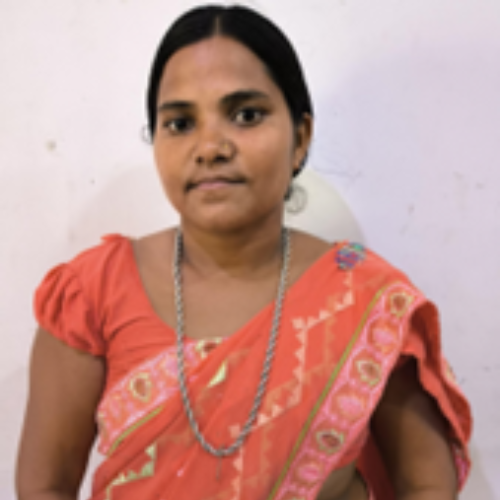
Nirmala Meda is a dedicated and passionate community leader, serving as the VO (Village Organization…More

Nirmala Meda is a dedicated and passionate community leader, serving as the VO (Village Organization) Leader in Petlawad, Jhabua, Madhya Pradesh. Her relentless efforts have focused on combatting Gender-Based Violence (GBV) and promoting gender equality in the community.
Nirmala’s achievements in addressing GBV have been significant. Collaborating with various stakeholders such as NAK (Nari Adalat Kendra), LAK (Lok Adalat Kendra), Local Police, and One Stop Center, she has been actively creating awareness about gender discrimination. Her work with LAK has provided crucial support to multiple SHG members who have faced GBV, offering them a strong support system.
However, her role as a leader comes with challenges. One of the main obstacles she faces is the lack of support from the community while assisting SHG members who are victims of GBV. Additionally, government departments and the Panchayat’s assistance on issues related to entitlement and gender violence has been insufficient.
To cope with these challenges, Nirmala adopts several proactive strategies. She regularly engages with Local Police to seek help in addressing gender-related issues. Moreover, she actively participates in the Gender Forum at both Panchayat and Block levels, where she advocates for community issues related to gender and entitlement. Being part of the SDM’s Task Force at the Block Level allows her to raise these important matters effectively.
In her present role, Nirmala’s vision is to empower all SHG members in Petlawad to fight against gender discrimination and access government entitlement schemes. She aims to provide assistance to SHG members in obtaining land rights, fostering economic independence and gender equality within the community.
Through her unwavering dedication and advocacy efforts, Nirmala Meda continues to make a meaningful impact in addressing gender-based challenges and promoting social justice in Petlawad. Her leadership and commitment inspire others to join the cause and work towards a more inclusive and equitable society.
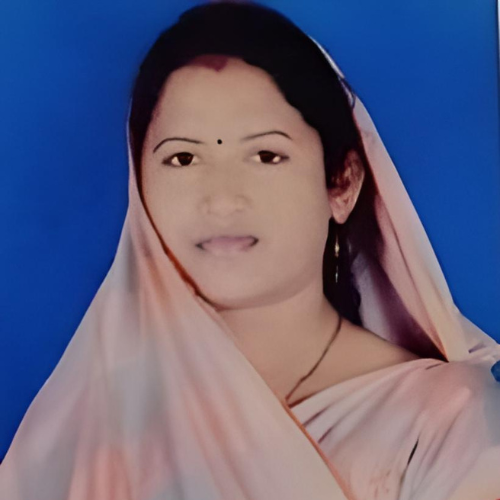
Ms Geeta Mahanand is a dynamic Sarpanch of Risama Panchayat of Durg District. She was one of the 9 S…More

Ms Geeta Mahanand is a dynamic Sarpanch of Risama Panchayat of Durg District. She was one of the 9 Sarpanch selected from all over the country to participate in Sarpanch Samwad. Her initiatives on making her panchayat Child friendly and Clean has been an example for others to follow.
- 8th August
- 10:35 AM – 12:15 PM
- India Habitat Centre – Tamarind Hall
- Hybrid
The Citizen View : Experiencing Governance
We will explore the incongruities of the administrations, politics and development experienced by the average rural India through a “Citizen Roundtable” (sarpanch, frontline workers and women leaders). Many studies establish the efficiency of government-led redistribution and the delivery of government-led development services as critical to building a just society. For millennia the Indian state has traditions reflected in rights over Jal, Jangal, Jameen that are still present along with colonial administration overhangs. On this rich and varied mosaic, the modern Indian welfare and development administration has been overlaid at different points of time without keeping territorial integrity at the cutting edge of citizen inter-face. This session explores the ground-up view of the complex Indian State system and explores the interlocking levers of change that a citizen can exercise while engaging with her public representatives, duty-bearers and service providers

Arun Maira has an unusual combination of experience as a hands-on leader in the business, public, an…More

Arun Maira has an unusual combination of experience as a hands-on leader in the business, public, and social sectors, as well as a consultant to leaders. He is a thought leader on subjects of leadership and systems transformation. He has written several books on institutional transformation and the future of India, including ‘A Billion Fireflies:’ Critical Conversations to Shape a New Post-Pandemic World; ‘Discordant Democrats:’ Five Steps to Consensus, ‘Transforming Systems:’ Why the World needs a New Ethical Toolkit; and ‘Listening for Well-Being:’ Conversations with People Not Like Us. He has produced far-sighted scenarios for the future of India with citizens’ participation in 2000, 2007, and 2013. The insights from those scenarios are becoming very relevant today. Arun was a member of India’s Planning Commission from 2009-14, before which he was Chairman of the Boston Consulting Group India, and previously had worked with the Tata Group in India and abroad for 25 years.

Ms Rashmi Shukla Sharma joined the Indian Administrative Service (IAS) in 1984. She is an alumnus of…More

Ms Rashmi Shukla Sharma joined the Indian Administrative Service (IAS) in 1984. She is an alumnus of Delhi and Princeton universities from where she earned M.Phil. (Psychology) and a Master’s degree in Public Administration, respectively. She has held senior positions in the Union Government and Government of Madhya Pradesh, apart from various field-level posts in the early part of her career. In the course of her service, she acquired in-depth knowledge and experience in School Education and Local Government. She is the author (with Vimala Ramachandran) of The Elementary Education System in India: A Field Based Investigation of Institutional Structures, Processes and Dynamics (2009), Routledge Press, New Delhi, and Local Government in India: Policy and Practice (2009), Manohar Publications, New Delhi, besides many papers the Economic and Political Weekly and elsewhere. She retired early from government service to take up research and teaching related to governance and public policy. She is also a board member of TRIF.

Narendra Kailash Mujhalda, a young and visionary leader, holds the esteemed position of Sarpanch in …More

Narendra Kailash Mujhalda, a young and visionary leader, holds the esteemed position of Sarpanch in Kharjana. His comprehensive approach and dedication have paved the way for transformative changes in the Gram Panchayat.
Narendra’s initial efforts were focused on enhancing the quality of education and essential facilities in schools. He achieved an impressive 90% student registration and continuous follow-up in primary and secondary schools, promoting awareness about education and filling vacant classrooms. Additionally, he initiated the distribution and consumption of Take-Home Rations (THR) to improve the services of the Anganwadi Centers.
Addressing local conflicts was another significant challenge, and Narendra took the lead in ensuring that the Panchayat became the primary forum for resolving grievances and conflicts. With the establishment of Shanti Samiti under the PESA Act, many cases are now resolved within the Panchayat, fostering peace and harmony in the community.
Recognizing the importance of collaboration, Narendra ensured the inclusion of Self-Help Groups (SHGs) in the development of the Gram Panchayat. Regular SHG meetings and their active participation have contributed to the overall progress of the GP.
As an aspirational leader, Narendra has a clear vision for the future of Kharjana. He plans to address rumors spread within the Panchayat and instill faith in its practices and processes. He envisions the Gram Sabha as the nodal point for addressing individual and collective needs, encouraging greater participation from villagers. Moreover, he aims to enhance health and education facilities in the Panchayat, further improving the well-being of the community.
Drawing inspiration from the model village Hivrebazar, Narendra Kailash Mujhalda strives to turn Kharjana into a thriving and progressive community, setting an example for other regions to follow. With his dedication, passion, and collaborative spirit, he is determined to bring about positive and lasting change in the Gram Panchayat during his tenure as Sarpanch.

Shri Vikas Anand ji is an esteemed civil servant belonging to the Indian Administrative Service (IAS…More

Shri Vikas Anand ji is an esteemed civil servant belonging to the Indian Administrative Service (IAS) 2002 batch, known for his dedicated service and commitment to public welfare. Presently, he holds the prestigious position of Joint Secretary at the Ministry of Panchayati Raj, where he plays a pivotal role in shaping policies that empower and strengthen grassroots governance in India.
Education has been a cornerstone of his illustrious career. Shri Vikas Anand ji pursued his higher education at renowned institutions, showcasing his academic prowess and thirst for knowledge. He earned a Master’s degree in Technology from the esteemed Indian Institute of Technology (IIT) Delhi, where he honed his technical acumen and problem-solving skills.
Seeking a broader understanding of governance and public policy, he furthered his education with a second master’s degree from the distinguished John F. Kennedy School of Government at Harvard University. This educational experience at one of the world’s leading universities provided him with invaluable insights into global governance practices and policy formulation.
Throughout his tenure as a civil servant, Shri Vikas Anand ji has demonstrated exemplary leadership, innovative thinking, and a deep sense of commitment to public service. His contributions to the Ministry of Panchayati Raj have been instrumental in advancing decentralization and empowering local self-government institutions, promoting equitable development and grassroots participation.
Shri Vikas Anand ji’s unwavering dedication to his duties and his passion for bringing positive change to society have earned him respect and admiration from colleagues and citizens alike. With his vast knowledge, administrative expertise, and strong moral compass, he continues to contribute significantly to the progress and betterment of the nation.

Rajesh Gupta is a highly dedicated and accomplished education professional, serving as the Block Res…More

Rajesh Gupta is a highly dedicated and accomplished education professional, serving as the Block Resource Coordinator at the Block Education Centre in Rajpur. With an impressive academic background that includes a B.Sc. in Mathematics, an M.A. in History, and a B.Ed., Rajesh possesses a unique blend of analytical and historical knowledge.
Throughout his career, Rajesh has made significant contributions to the education sector. In 2014, he spearheaded the School Chalo Abhiyaan, an intensive awareness campaign across 54 villages in the Block, leading to a remarkable surge in school enrollments. Recognizing the importance of parental involvement, he organized BCC activities and choupal meetings to support children’s academic journeys.
Rajesh’s passion for creating exceptional learning environments also led him to coordinate the ‘हमारी शाला सबसे अच्छी’ campaign and collaborate with the Room to Read NGO for a ‘use of library in the schools’ initiative. Moreover, he actively engaged with various Civil Society Organizations, including TRIF, to enhance School Management Committee (SMC) meetings and prioritize education in village-level planning and development.
With his unwavering commitment to educational advancement and community welfare, Rajesh Gupta continues to be a driving force in shaping the future of education in Block Rajpur.

Chandra Pratap Singh Rajawat is an esteemed socio-political practitioner, researcher, and elected re…More

Chandra Pratap Singh Rajawat is an esteemed socio-political practitioner, researcher, and elected representative with a remarkable 24 years of experience in managing diverse roles and responsibilities in Local Governance, Rural Development, and Stakeholder Management.
Throughout his career, Chandra Pratap has been involved in various impactful projects and initiatives. He managed the CSR Midstream Pipeline and Offshore Operations for Vedanta, Cairn Oil & Gas, a joint venture with ONGC & GoI, overseeing CSR operations in Rajasthan, Gujarat, and Tamilnadu.
He also served as the State Coordinator for Microfinance & Enterprise Development under the Ministry of Panchayat & Rural Development of GoMP, contributing to the Madhya Pradesh Rural Livelihoods Project.
Chandra Pratap’s expertise extends to his previous role as a District Project Officer in the Madhya Pradesh Rural Livelihoods Project, where he made significant strides in rural development.
Before that, he worked as a Specialist in Social Development with Gramin Vikas Trust (KRIBHCO), funded by DFID, UK, focusing on livelihood enhancement programs in Madhya Pradesh and Gujarat.
His dedication and commitment to community development are evident from his work as a Community Organizer for KRIBHCO’s Indo British Rainfed Farming Project, emphasizing participatory sustainable livelihoods development in Gujarat.
As the Sarpanch of Gram Panchayat Sanwansi, Chandra Pratap envisions re-establishing the credibility of the GP as an effective local governance institution. He aims to lead the Gram Panchayat as a Water Surplus entity through appropriate water resource management and stimulate economic activities and opportunities through eco-tourism.
Chandra Pratap is determined to make the Gram Panchayat self-sustainable through asset generation while ensuring proper service delivery through effective coordination and close monitoring. His vision also encompasses achieving 100% coverage of Social Security schemes and promoting health and hygiene for the welfare of the community.

Laxmi Suresh Khanna is a trailblazing community member, serving as an Elected Panch in Nandgaon Vill…More

Laxmi Suresh Khanna is a trailblazing community member, serving as an Elected Panch in Nandgaon Village, Rajpur Block, Barwani District, MP. In a male-dominant sector of politics, Laxmi, along with 10 other determined female members, established a powerful political identity in her Gram Panchayat (GP). Breaking barriers and defying traditional norms, they achieved an extraordinary dream, proving that ordinary women possess great strength.
Despite her significant achievements, Laxmi faced numerous challenges in her role. The traditional perception of a male leader leading politically posed hurdles, even though the community elected her for the position. While they have gained acceptance through votes, establishing a GP mainly run by women remains a work in progress. Engaging all women voters in Gram Panchayat work also poses a challenge.
To overcome these challenges, Laxmi became a governance change vector. Her competence in GP and standing committee work, as well as her proficiency in the GPDP process and tracking, have been instrumental in driving positive change. She mobilized women for Gram Sabha meetings and educated them about their rights, ensuring their active participation in the GP process. Regular GP meetings and transparency became the norm with women actively involved.
Laxmi’s vision in her present role is to continue empowering her community and promoting education for girls. She played a pivotal role in forming the standing committee and now shares her governance knowledge with other members. They are advocating for schools up to the 12th grade in their village, particularly for girls to have access to continued education. Additionally, she aims to establish learning centers for other school dropouts, ensuring education opportunities for all.
Furthermore, Laxmi aspires to provide essential health facilities to the villagers through a sub-center, contributing to the overall welfare of the community. In alignment with the current year’s GPDP, she remains committed to working towards the betterment of her community, leaving a lasting impact on the lives of those she serves.

Sarita Devi is a dedicated Sahiya Sathi, holding a crucial position in her community at Horhap Villa…More

Sarita Devi is a dedicated Sahiya Sathi, holding a crucial position in her community at Horhap Village, Namkum Block, Ranchi, Jharkhand. Her achievements exemplify her unwavering commitment to the welfare of women, children, and the elderly in her village.
One of her most notable accomplishments is saving the lives of women and children during Institutional Delivery. She demonstrated exceptional bravery and quick thinking when she provided life-saving mouth-to-mouth rescue breathing to a newborn in the absence of a Skilled Birth Attendant.
Beyond maternal and child health, Sarita has worked extensively for the elderly in her village. Her efforts have resulted in numerous elderly villagers gaining access to old age pensions and ration cards, bringing them much-needed support and security.
However, her role as a care provider also comes with challenges. Ensuring complete ANC (Antenatal Care) for all pregnant women and complete immunization for children remains a persistent challenge, as some cases face delays due to household issues. Additionally, handling extreme cases of diarrhea outbreaks in the village and obtaining timely referral support can be daunting. Moreover, she faces resistance from certain individuals in the community, making it challenging to navigate such situations.
Despite these hurdles, Sarita exhibits resilience and determination. She leads by example in her household, demonstrating healthy habits to address anemia and malnutrition in women. Instead of being discouraged by unsupportive individuals, she chooses to counsel and engage them to promote positive change.
In her present role, Sarita envisions a village where no one goes hungry and all essential services are accessible to every person. She advocates for extending benefits like PDS, pensions, and healthcare to everyone, aiming to break the cycle of poverty in her community. She encourages people to be productive and not waste their time, fostering a sense of empowerment and self-reliance among the villagers.
Sarita Devi’s unwavering dedication and compassion have made her a vital asset to her community, inspiring others to work together towards a brighter and more inclusive future.

Jasma Kanoje is a proactive and influential community member, deeply committed to empowering women i…More

Jasma Kanoje is a proactive and influential community member, deeply committed to empowering women in her region. Recognizing the challenges faced by women, she actively voiced their concerns in Gramsabha, Village Organization (VO), and the Community Livelihood Forum (CLF). Her dedication and leadership qualities earned her the position of CLF Adhyakshy for Jeevan Jyoti CLF, representing 16 villages in the Palsud cluster.
Under Jasma’s guidance, Jeevan Jyoti CLF made significant strides towards women’s empowerment. Producer Groups were established in each village, engaging in public procurement and microbusiness through processing units. The CLF also shared extraordinary success stories in health and education, contributing to the development of the Gram Panchayat Development Plan (GPDP) and ensuring the saturation of government schemes.
However, the journey wasn’t without challenges. Acceptance from the community towards Self-Help Groups (SHGs) and their work posed a significant obstacle. Jasma tackled this by tirelessly visiting all 16 villages, creating awareness about SHGs, and gradually increasing acceptance. The allocation of loans to needy members further helped overcome resistance from families. As a CLF, they also advocate for their demands by sending letters to various government departments. Currently, they are striving to establish a CLF Bhavan and are actively approaching concerned authorities for support.
In her present role, Jasma Kanoje envisions creating business opportunities to increase the income of all women in her cluster. Her commitment to women’s empowerment, combined with her strategic approach, continues to inspire positive change in the community. Through her efforts, she seeks to uplift the lives of women and foster sustainable economic growth, making a lasting impact on the entire region.

Gayatri Solanki is a dedicated Anganwadi Worker (AWW) in Singhana, Manawar, Dhar district, Madhya Pr…More

Gayatri Solanki is a dedicated Anganwadi Worker (AWW) in Singhana, Manawar, Dhar district, Madhya Pradesh. Over the span of 16 years, she has achieved remarkable milestones and positively impacted the lives of many in her community.
In the early years of her career, Gayatri faced challenges in organizing Village Health, Sanitation, and Nutrition Days (VHSNDs) due to a lack of infrastructure. However, her persistent efforts and regular recommendations to supervisors and officials led to her obtaining a separate room in the ICDS office, ensuring smooth functioning and quality service delivery.
Recognizing the struggles of some families who migrated, leaving their children alone, Gayatri took initiative to ensure no child went hungry. Using her stock of supplementary nutrition, she started feeding these children daily, continuing the practice for many others in need.
Her dedication to education is evident through her efforts to re-admit two young girls, Nandini and Varsha, who had dropped out after the 5th class. She also actively promotes Ladli Laxmi Yojna registration for newborn girls and initiated C-SAM screening and NRC referrals through coordination with NHM staff.
During the challenging times of COVID, Gayatri collaborated with the nearest sub-centre ANM to spread awareness about COVID vaccinations and quarantine facilities.
Despite the progress she has achieved, Gayatri has faced challenges, including the lack of adequate infrastructure and transportation. Convincing parents to avail the services of Anganwadi Centres (AWCs) also remains a hurdle.
To cope with these challenges, Gayatri built linkages with local Self-Help Groups (SHGs) and Village Organizations (VOs), allowing her to conduct home visits and reach beneficiaries more effectively. She also appreciates the support of ANMs in her area, which has facilitated the delivery of quality services to the community.
In her present role, Gayatri Solanki envisions larger goals for providing adequate services to all. She aspires to create a playful learning environment within AWCs, similar to private play schools, to enhance children’s learning and make it enjoyable. Additionally, she aims to establish stronger ties between AWCs and schools, emphasizing AWCs as the primary point of education for children before direct school admission.
Through her unwavering dedication and forward-thinking approach, Gayatri continues to make a significant difference in her community, setting an inspiring example for others to follow.

Nirmala Meda is a dedicated and passionate community leader, serving as the VO (Village Organization…More

Nirmala Meda is a dedicated and passionate community leader, serving as the VO (Village Organization) Leader in Petlawad, Jhabua, Madhya Pradesh. Her relentless efforts have focused on combatting Gender-Based Violence (GBV) and promoting gender equality in the community.
Nirmala’s achievements in addressing GBV have been significant. Collaborating with various stakeholders such as NAK (Nari Adalat Kendra), LAK (Lok Adalat Kendra), Local Police, and One Stop Center, she has been actively creating awareness about gender discrimination. Her work with LAK has provided crucial support to multiple SHG members who have faced GBV, offering them a strong support system.
However, her role as a leader comes with challenges. One of the main obstacles she faces is the lack of support from the community while assisting SHG members who are victims of GBV. Additionally, government departments and the Panchayat’s assistance on issues related to entitlement and gender violence has been insufficient.
To cope with these challenges, Nirmala adopts several proactive strategies. She regularly engages with Local Police to seek help in addressing gender-related issues. Moreover, she actively participates in the Gender Forum at both Panchayat and Block levels, where she advocates for community issues related to gender and entitlement. Being part of the SDM’s Task Force at the Block Level allows her to raise these important matters effectively.
In her present role, Nirmala’s vision is to empower all SHG members in Petlawad to fight against gender discrimination and access government entitlement schemes. She aims to provide assistance to SHG members in obtaining land rights, fostering economic independence and gender equality within the community.
Through her unwavering dedication and advocacy efforts, Nirmala Meda continues to make a meaningful impact in addressing gender-based challenges and promoting social justice in Petlawad. Her leadership and commitment inspire others to join the cause and work towards a more inclusive and equitable society.

Ms Geeta Mahanand is a dynamic Sarpanch of Risama Panchayat of Durg District. She was one of the 9 S…More

Ms Geeta Mahanand is a dynamic Sarpanch of Risama Panchayat of Durg District. She was one of the 9 Sarpanch selected from all over the country to participate in Sarpanch Samwad. Her initiatives on making her panchayat Child friendly and Clean has been an example for others to follow.

Arun Maira has an unusual combination of experience as a hands-on leader in the business, public, an…More

Arun Maira has an unusual combination of experience as a hands-on leader in the business, public, and social sectors, as well as a consultant to leaders. He is a thought leader on subjects of leadership and systems transformation. He has written several books on institutional transformation and the future of India, including ‘A Billion Fireflies:’ Critical Conversations to Shape a New Post-Pandemic World; ‘Discordant Democrats:’ Five Steps to Consensus, ‘Transforming Systems:’ Why the World needs a New Ethical Toolkit; and ‘Listening for Well-Being:’ Conversations with People Not Like Us. He has produced far-sighted scenarios for the future of India with citizens’ participation in 2000, 2007, and 2013. The insights from those scenarios are becoming very relevant today. Arun was a member of India’s Planning Commission from 2009-14, before which he was Chairman of the Boston Consulting Group India, and previously had worked with the Tata Group in India and abroad for 25 years.

Ms Rashmi Shukla Sharma joined the Indian Administrative Service (IAS) in 1984. She is an alumnus of…More

Ms Rashmi Shukla Sharma joined the Indian Administrative Service (IAS) in 1984. She is an alumnus of Delhi and Princeton universities from where she earned M.Phil. (Psychology) and a Master’s degree in Public Administration, respectively. She has held senior positions in the Union Government and Government of Madhya Pradesh, apart from various field-level posts in the early part of her career. In the course of her service, she acquired in-depth knowledge and experience in School Education and Local Government. She is the author (with Vimala Ramachandran) of The Elementary Education System in India: A Field Based Investigation of Institutional Structures, Processes and Dynamics (2009), Routledge Press, New Delhi, and Local Government in India: Policy and Practice (2009), Manohar Publications, New Delhi, besides many papers the Economic and Political Weekly and elsewhere. She retired early from government service to take up research and teaching related to governance and public policy. She is also a board member of TRIF.

Narendra Kailash Mujhalda, a young and visionary leader, holds the esteemed position of Sarpanch in …More

Narendra Kailash Mujhalda, a young and visionary leader, holds the esteemed position of Sarpanch in Kharjana. His comprehensive approach and dedication have paved the way for transformative changes in the Gram Panchayat.
Narendra’s initial efforts were focused on enhancing the quality of education and essential facilities in schools. He achieved an impressive 90% student registration and continuous follow-up in primary and secondary schools, promoting awareness about education and filling vacant classrooms. Additionally, he initiated the distribution and consumption of Take-Home Rations (THR) to improve the services of the Anganwadi Centers.
Addressing local conflicts was another significant challenge, and Narendra took the lead in ensuring that the Panchayat became the primary forum for resolving grievances and conflicts. With the establishment of Shanti Samiti under the PESA Act, many cases are now resolved within the Panchayat, fostering peace and harmony in the community.
Recognizing the importance of collaboration, Narendra ensured the inclusion of Self-Help Groups (SHGs) in the development of the Gram Panchayat. Regular SHG meetings and their active participation have contributed to the overall progress of the GP.
As an aspirational leader, Narendra has a clear vision for the future of Kharjana. He plans to address rumors spread within the Panchayat and instill faith in its practices and processes. He envisions the Gram Sabha as the nodal point for addressing individual and collective needs, encouraging greater participation from villagers. Moreover, he aims to enhance health and education facilities in the Panchayat, further improving the well-being of the community.
Drawing inspiration from the model village Hivrebazar, Narendra Kailash Mujhalda strives to turn Kharjana into a thriving and progressive community, setting an example for other regions to follow. With his dedication, passion, and collaborative spirit, he is determined to bring about positive and lasting change in the Gram Panchayat during his tenure as Sarpanch.

Shri Vikas Anand ji is an esteemed civil servant belonging to the Indian Administrative Service (IAS…More

Shri Vikas Anand ji is an esteemed civil servant belonging to the Indian Administrative Service (IAS) 2002 batch, known for his dedicated service and commitment to public welfare. Presently, he holds the prestigious position of Joint Secretary at the Ministry of Panchayati Raj, where he plays a pivotal role in shaping policies that empower and strengthen grassroots governance in India.
Education has been a cornerstone of his illustrious career. Shri Vikas Anand ji pursued his higher education at renowned institutions, showcasing his academic prowess and thirst for knowledge. He earned a Master’s degree in Technology from the esteemed Indian Institute of Technology (IIT) Delhi, where he honed his technical acumen and problem-solving skills.
Seeking a broader understanding of governance and public policy, he furthered his education with a second master’s degree from the distinguished John F. Kennedy School of Government at Harvard University. This educational experience at one of the world’s leading universities provided him with invaluable insights into global governance practices and policy formulation.
Throughout his tenure as a civil servant, Shri Vikas Anand ji has demonstrated exemplary leadership, innovative thinking, and a deep sense of commitment to public service. His contributions to the Ministry of Panchayati Raj have been instrumental in advancing decentralization and empowering local self-government institutions, promoting equitable development and grassroots participation.
Shri Vikas Anand ji’s unwavering dedication to his duties and his passion for bringing positive change to society have earned him respect and admiration from colleagues and citizens alike. With his vast knowledge, administrative expertise, and strong moral compass, he continues to contribute significantly to the progress and betterment of the nation.

Rajesh Gupta is a highly dedicated and accomplished education professional, serving as the Block Res…More

Rajesh Gupta is a highly dedicated and accomplished education professional, serving as the Block Resource Coordinator at the Block Education Centre in Rajpur. With an impressive academic background that includes a B.Sc. in Mathematics, an M.A. in History, and a B.Ed., Rajesh possesses a unique blend of analytical and historical knowledge.
Throughout his career, Rajesh has made significant contributions to the education sector. In 2014, he spearheaded the School Chalo Abhiyaan, an intensive awareness campaign across 54 villages in the Block, leading to a remarkable surge in school enrollments. Recognizing the importance of parental involvement, he organized BCC activities and choupal meetings to support children’s academic journeys.
Rajesh’s passion for creating exceptional learning environments also led him to coordinate the ‘हमारी शाला सबसे अच्छी’ campaign and collaborate with the Room to Read NGO for a ‘use of library in the schools’ initiative. Moreover, he actively engaged with various Civil Society Organizations, including TRIF, to enhance School Management Committee (SMC) meetings and prioritize education in village-level planning and development.
With his unwavering commitment to educational advancement and community welfare, Rajesh Gupta continues to be a driving force in shaping the future of education in Block Rajpur.

Chandra Pratap Singh Rajawat is an esteemed socio-political practitioner, researcher, and elected re…More

Chandra Pratap Singh Rajawat is an esteemed socio-political practitioner, researcher, and elected representative with a remarkable 24 years of experience in managing diverse roles and responsibilities in Local Governance, Rural Development, and Stakeholder Management.
Throughout his career, Chandra Pratap has been involved in various impactful projects and initiatives. He managed the CSR Midstream Pipeline and Offshore Operations for Vedanta, Cairn Oil & Gas, a joint venture with ONGC & GoI, overseeing CSR operations in Rajasthan, Gujarat, and Tamilnadu.
He also served as the State Coordinator for Microfinance & Enterprise Development under the Ministry of Panchayat & Rural Development of GoMP, contributing to the Madhya Pradesh Rural Livelihoods Project.
Chandra Pratap’s expertise extends to his previous role as a District Project Officer in the Madhya Pradesh Rural Livelihoods Project, where he made significant strides in rural development.
Before that, he worked as a Specialist in Social Development with Gramin Vikas Trust (KRIBHCO), funded by DFID, UK, focusing on livelihood enhancement programs in Madhya Pradesh and Gujarat.
His dedication and commitment to community development are evident from his work as a Community Organizer for KRIBHCO’s Indo British Rainfed Farming Project, emphasizing participatory sustainable livelihoods development in Gujarat.
As the Sarpanch of Gram Panchayat Sanwansi, Chandra Pratap envisions re-establishing the credibility of the GP as an effective local governance institution. He aims to lead the Gram Panchayat as a Water Surplus entity through appropriate water resource management and stimulate economic activities and opportunities through eco-tourism.
Chandra Pratap is determined to make the Gram Panchayat self-sustainable through asset generation while ensuring proper service delivery through effective coordination and close monitoring. His vision also encompasses achieving 100% coverage of Social Security schemes and promoting health and hygiene for the welfare of the community.

Laxmi Suresh Khanna is a trailblazing community member, serving as an Elected Panch in Nandgaon Vill…More

Laxmi Suresh Khanna is a trailblazing community member, serving as an Elected Panch in Nandgaon Village, Rajpur Block, Barwani District, MP. In a male-dominant sector of politics, Laxmi, along with 10 other determined female members, established a powerful political identity in her Gram Panchayat (GP). Breaking barriers and defying traditional norms, they achieved an extraordinary dream, proving that ordinary women possess great strength.
Despite her significant achievements, Laxmi faced numerous challenges in her role. The traditional perception of a male leader leading politically posed hurdles, even though the community elected her for the position. While they have gained acceptance through votes, establishing a GP mainly run by women remains a work in progress. Engaging all women voters in Gram Panchayat work also poses a challenge.
To overcome these challenges, Laxmi became a governance change vector. Her competence in GP and standing committee work, as well as her proficiency in the GPDP process and tracking, have been instrumental in driving positive change. She mobilized women for Gram Sabha meetings and educated them about their rights, ensuring their active participation in the GP process. Regular GP meetings and transparency became the norm with women actively involved.
Laxmi’s vision in her present role is to continue empowering her community and promoting education for girls. She played a pivotal role in forming the standing committee and now shares her governance knowledge with other members. They are advocating for schools up to the 12th grade in their village, particularly for girls to have access to continued education. Additionally, she aims to establish learning centers for other school dropouts, ensuring education opportunities for all.
Furthermore, Laxmi aspires to provide essential health facilities to the villagers through a sub-center, contributing to the overall welfare of the community. In alignment with the current year’s GPDP, she remains committed to working towards the betterment of her community, leaving a lasting impact on the lives of those she serves.

Sarita Devi is a dedicated Sahiya Sathi, holding a crucial position in her community at Horhap Villa…More

Sarita Devi is a dedicated Sahiya Sathi, holding a crucial position in her community at Horhap Village, Namkum Block, Ranchi, Jharkhand. Her achievements exemplify her unwavering commitment to the welfare of women, children, and the elderly in her village.
One of her most notable accomplishments is saving the lives of women and children during Institutional Delivery. She demonstrated exceptional bravery and quick thinking when she provided life-saving mouth-to-mouth rescue breathing to a newborn in the absence of a Skilled Birth Attendant.
Beyond maternal and child health, Sarita has worked extensively for the elderly in her village. Her efforts have resulted in numerous elderly villagers gaining access to old age pensions and ration cards, bringing them much-needed support and security.
However, her role as a care provider also comes with challenges. Ensuring complete ANC (Antenatal Care) for all pregnant women and complete immunization for children remains a persistent challenge, as some cases face delays due to household issues. Additionally, handling extreme cases of diarrhea outbreaks in the village and obtaining timely referral support can be daunting. Moreover, she faces resistance from certain individuals in the community, making it challenging to navigate such situations.
Despite these hurdles, Sarita exhibits resilience and determination. She leads by example in her household, demonstrating healthy habits to address anemia and malnutrition in women. Instead of being discouraged by unsupportive individuals, she chooses to counsel and engage them to promote positive change.
In her present role, Sarita envisions a village where no one goes hungry and all essential services are accessible to every person. She advocates for extending benefits like PDS, pensions, and healthcare to everyone, aiming to break the cycle of poverty in her community. She encourages people to be productive and not waste their time, fostering a sense of empowerment and self-reliance among the villagers.
Sarita Devi’s unwavering dedication and compassion have made her a vital asset to her community, inspiring others to work together towards a brighter and more inclusive future.

Jasma Kanoje is a proactive and influential community member, deeply committed to empowering women i…More

Jasma Kanoje is a proactive and influential community member, deeply committed to empowering women in her region. Recognizing the challenges faced by women, she actively voiced their concerns in Gramsabha, Village Organization (VO), and the Community Livelihood Forum (CLF). Her dedication and leadership qualities earned her the position of CLF Adhyakshy for Jeevan Jyoti CLF, representing 16 villages in the Palsud cluster.
Under Jasma’s guidance, Jeevan Jyoti CLF made significant strides towards women’s empowerment. Producer Groups were established in each village, engaging in public procurement and microbusiness through processing units. The CLF also shared extraordinary success stories in health and education, contributing to the development of the Gram Panchayat Development Plan (GPDP) and ensuring the saturation of government schemes.
However, the journey wasn’t without challenges. Acceptance from the community towards Self-Help Groups (SHGs) and their work posed a significant obstacle. Jasma tackled this by tirelessly visiting all 16 villages, creating awareness about SHGs, and gradually increasing acceptance. The allocation of loans to needy members further helped overcome resistance from families. As a CLF, they also advocate for their demands by sending letters to various government departments. Currently, they are striving to establish a CLF Bhavan and are actively approaching concerned authorities for support.
In her present role, Jasma Kanoje envisions creating business opportunities to increase the income of all women in her cluster. Her commitment to women’s empowerment, combined with her strategic approach, continues to inspire positive change in the community. Through her efforts, she seeks to uplift the lives of women and foster sustainable economic growth, making a lasting impact on the entire region.

Gayatri Solanki is a dedicated Anganwadi Worker (AWW) in Singhana, Manawar, Dhar district, Madhya Pr…More

Gayatri Solanki is a dedicated Anganwadi Worker (AWW) in Singhana, Manawar, Dhar district, Madhya Pradesh. Over the span of 16 years, she has achieved remarkable milestones and positively impacted the lives of many in her community.
In the early years of her career, Gayatri faced challenges in organizing Village Health, Sanitation, and Nutrition Days (VHSNDs) due to a lack of infrastructure. However, her persistent efforts and regular recommendations to supervisors and officials led to her obtaining a separate room in the ICDS office, ensuring smooth functioning and quality service delivery.
Recognizing the struggles of some families who migrated, leaving their children alone, Gayatri took initiative to ensure no child went hungry. Using her stock of supplementary nutrition, she started feeding these children daily, continuing the practice for many others in need.
Her dedication to education is evident through her efforts to re-admit two young girls, Nandini and Varsha, who had dropped out after the 5th class. She also actively promotes Ladli Laxmi Yojna registration for newborn girls and initiated C-SAM screening and NRC referrals through coordination with NHM staff.
During the challenging times of COVID, Gayatri collaborated with the nearest sub-centre ANM to spread awareness about COVID vaccinations and quarantine facilities.
Despite the progress she has achieved, Gayatri has faced challenges, including the lack of adequate infrastructure and transportation. Convincing parents to avail the services of Anganwadi Centres (AWCs) also remains a hurdle.
To cope with these challenges, Gayatri built linkages with local Self-Help Groups (SHGs) and Village Organizations (VOs), allowing her to conduct home visits and reach beneficiaries more effectively. She also appreciates the support of ANMs in her area, which has facilitated the delivery of quality services to the community.
In her present role, Gayatri Solanki envisions larger goals for providing adequate services to all. She aspires to create a playful learning environment within AWCs, similar to private play schools, to enhance children’s learning and make it enjoyable. Additionally, she aims to establish stronger ties between AWCs and schools, emphasizing AWCs as the primary point of education for children before direct school admission.
Through her unwavering dedication and forward-thinking approach, Gayatri continues to make a significant difference in her community, setting an inspiring example for others to follow.

Nirmala Meda is a dedicated and passionate community leader, serving as the VO (Village Organization…More

Nirmala Meda is a dedicated and passionate community leader, serving as the VO (Village Organization) Leader in Petlawad, Jhabua, Madhya Pradesh. Her relentless efforts have focused on combatting Gender-Based Violence (GBV) and promoting gender equality in the community.
Nirmala’s achievements in addressing GBV have been significant. Collaborating with various stakeholders such as NAK (Nari Adalat Kendra), LAK (Lok Adalat Kendra), Local Police, and One Stop Center, she has been actively creating awareness about gender discrimination. Her work with LAK has provided crucial support to multiple SHG members who have faced GBV, offering them a strong support system.
However, her role as a leader comes with challenges. One of the main obstacles she faces is the lack of support from the community while assisting SHG members who are victims of GBV. Additionally, government departments and the Panchayat’s assistance on issues related to entitlement and gender violence has been insufficient.
To cope with these challenges, Nirmala adopts several proactive strategies. She regularly engages with Local Police to seek help in addressing gender-related issues. Moreover, she actively participates in the Gender Forum at both Panchayat and Block levels, where she advocates for community issues related to gender and entitlement. Being part of the SDM’s Task Force at the Block Level allows her to raise these important matters effectively.
In her present role, Nirmala’s vision is to empower all SHG members in Petlawad to fight against gender discrimination and access government entitlement schemes. She aims to provide assistance to SHG members in obtaining land rights, fostering economic independence and gender equality within the community.
Through her unwavering dedication and advocacy efforts, Nirmala Meda continues to make a meaningful impact in addressing gender-based challenges and promoting social justice in Petlawad. Her leadership and commitment inspire others to join the cause and work towards a more inclusive and equitable society.

Ms Geeta Mahanand is a dynamic Sarpanch of Risama Panchayat of Durg District. She was one of the 9 S…More

Ms Geeta Mahanand is a dynamic Sarpanch of Risama Panchayat of Durg District. She was one of the 9 Sarpanch selected from all over the country to participate in Sarpanch Samwad. Her initiatives on making her panchayat Child friendly and Clean has been an example for others to follow.
- 8th August
- 12:30 PM – 1:30 PM
- India Habitat Centre – Tamarind Hall
- Hybrid
New Education Policy: Primary Education in Rural India
“The National Education Policy of India 2020 (NEP 2020) outlined a comprehensive framework for education in rural India. It aims to transform India’s education system by 2030 and prioritizes the universal foundational stage learning requirement. During the Session the first-ever State of Elementary Education in Rural India report, from the Development Intelligence Unit (DIU), will be released, bringing insights and improvement opportunities into the state of primary education in rural India. The session will not only deliberate on pathways to the NEP 2020 vision, but will discuss the innovative ways of bringing stranded communities into the education system. It will bring into focus the voices traditionally out of the systemic orbit and how developing social capital of remote villagers has the potential to transform the primary education system.
The National Education Policy of India 2020 prioritizes universal foundational learning and aims to transform education for rural India by 2030. In this session, we will release the ‘State of Rural Primary Schools – 2023’ report from the Development Intelligence Unit (DIU) that will insights and actionable takeaways on primary education in rural India. The conversation will deliberate on pathways to realize the vision of the NEP by involving rural communities that have been kept away from the education system in India.”
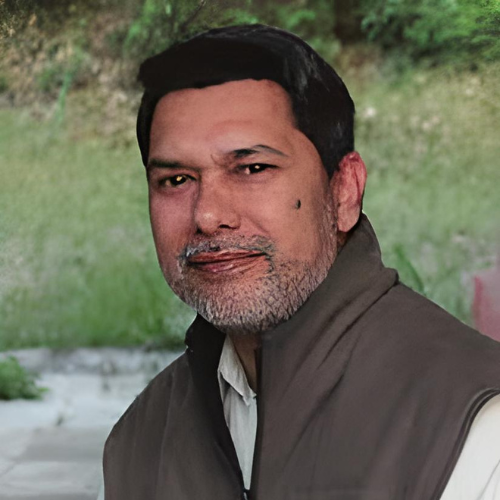
Subir Shukla has made significant contributions to the field of education. He has served as the Form…More

Subir Shukla has made significant contributions to the field of education. He has served as the Former Educational Quality Advisor to the Ministry of Human Resource Development (MHRD), Government of India, where he played a pivotal role in developing the Quality Framework for the implementation of the Right to Education and Sarva Shiksha Abhiyan, India’s programme for achieving Education For All (EFA).
Currently, Subir Shukla holds the position of Principal Coordinator at Group Ignus, which comprises three entities: IgnusERG, a consulting company; Ignus-PAHAL, a non-profit organization; and Ignus-OUTREACH, focused on low-cost educational publishing. In this role, he is dedicated to bringing about large-scale systemic change in education. He provides advisory services to state and national governments in Asia, focusing on developing appropriate models for vulnerable population groups and enhancing the quality of both governmental and NGO educational programs.
Subir Shukla’s work encompasses various aspects, including improving curricula, textbooks, teacher training, and capacity building at different levels. He also emphasizes reaching out to teachers and grassroots functionaries, supporting them in their efforts to bring about positive change and improvement in education.
Through his expertise and dedication, Subir Shukla strives to create a lasting impact on the education sector, working towards the goal of providing quality education to all, especially to marginalized and disadvantaged communities.

Snorre Westgaard: He is currently the Chief Executive Officer of Humana People to People India (HPPI…More

Snorre Westgaard: He is currently the Chief Executive Officer of Humana People to People India (HPPI). He has been associated with HPPI for the last 18 years, as Programme Director and then Chief Functionary.
He has spearheaded HPPI’s programs under the PPP (Public Private Partnership Model) in Education with the vision to empower the knowledge base of the public schools and teacher training institutes.
Apart from his work in India, he also has 24 years of experience working in Africa with Community Development and HIV/AIDS projects. He is currently the Chairman of the Board of the Federation of Associations connected to the Humana People Movement, a network of 29 Associations across the world of which HPP India is also a member.
He completed bachelors degree in psychology from University of Oslo in 1978.
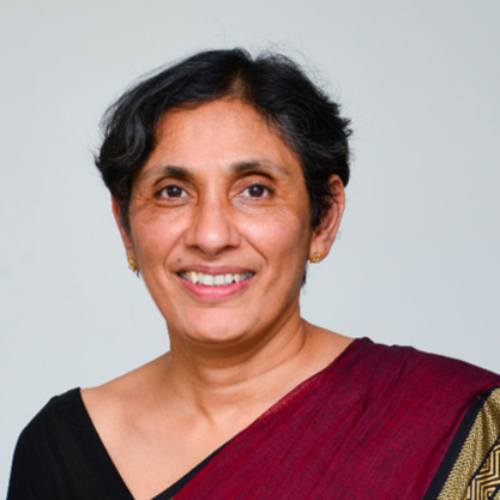
Dr. Sara Varughese graduated from CMC Vellore, India and is a fellow of the Royal College of Surgeon…More

Dr. Sara Varughese graduated from CMC Vellore, India and is a fellow of the Royal College of Surgeons, Edinburgh. She has done her Masters in public eye health from the London School of Hygiene and Tropical Medicine (LSHTM). She started her career as an ophthalmologist with a focus on public and community health. She has experience of health systems in developed countries (UK), middle income (South Africa) and developing countries (India, Nepal, Bangladesh). She has served the World Health Organisation (WHO), South East Asia Regional Office as programme Manager in disability & rehabilitation for the 11 countries of SouthEast Asia. She also served as Medical Advisor for CBM South Asia Regional Office-North dealing with cross disability programs. She was the president of national vision2020 -the right to sight India, a forum of 150 national and international organisations working closely with the government of India on prevention of blindness & visual impairments programmes & policy.
Dr. Sara Varughese was selected by the Ministry of Social Justice and Empowerment, Government of India, as a member of the technical team to co-design a course on CBID with the University of Melbourne in April 2019. Dr. Varughese was conferred with the award for her contributions towards inclusive development and principally on the issues of people with disabilities.

Purvi Shah is currently serving as Sr. Director of StoryWeaver & Strategy at Pratham Books. Her…More

Purvi Shah is currently serving as Sr. Director of StoryWeaver & Strategy at Pratham Books. Her seventeen years at Pratham Books has seen her manage several diverse portfolios. Her current role involves driving Pratham Books’ mission of ‘a book in every child’s hand’ through its digital platform, StoryWeaver. StoryWeaver is a recognized Digital Public Good and one of the largest OER’s for children’s storybooks in over 300 languages. She has espoused the open source philosophy and truly believes that in it lies the path to creating greater access and equity.
- 8th August
- 2:15 PM – 3:30 PM
- India Habitat Centre – Tamarind Hall
- Hybrid
Philanthropy: An Agenda with the Welfare State
In a democracy the role of government goes beyond being an “agent” of citizens enforcing rights to being an active “force of change” addressing social and economic aspirations. The outlay-outcome gap means the bulk of today’s poor people are unable to benefit from state policies and market signals. Yet India’s recent vast economic growth gives the Indian state huge financial resources for social sector spending. Likewise, high-net-worth individuals have more reserves than ever before for philanthropy. And the philanthropic capital coming from corporate India, through corporate social responsibility (CSR) schemes has a unique space of deployment as an impact multiplier. Philanthropies have a critical role in building up a well-functioning NGOS, think tanks and expertise available to government. This session will seek to lay a blueprint for philanthropy to work with government, bringing best practices, proof of concept and professional expertise. After all, the idea is not new, Nehru had invited the Ford Foundation to help build state capacity long ago. But where are we today?
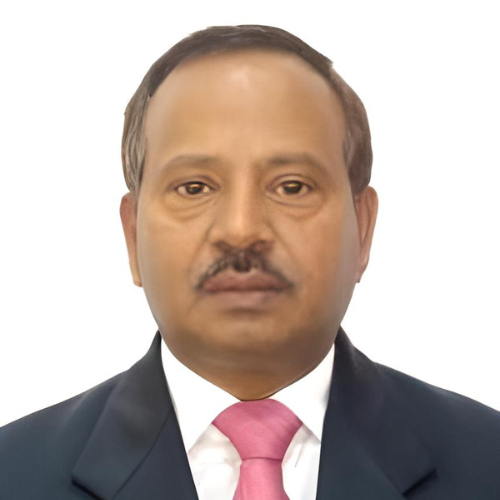
NN Sinha is a 1987 batch IAS officer of the Jharkhand cadre and is currently serving as Secretary, M…More

NN Sinha is a 1987 batch IAS officer of the Jharkhand cadre and is currently serving as Secretary, Ministry of Steel, Government of India. He was earlier serving as Secretary, Department of Rural Development, Ministry of Rural Development and was responsible for running massive anti-poverty and area development programs such as Mahatma Gandhi NREGA, and PM Aawaas Yojana among others. He also held the position of Chairman of the National Highway Authority of India. He has also worked as Additional Chief Secretary, Rural Development, Govt. of Jharkhand where he played a pivotal role in organizing rural poor, creating sustainable livelihood & employment opportunities & NRM based development. He has led several departments including PWD, Mines, Industry, IT etc in Jharkhand. He has also been instrumental in the development of several policies and documents viz. PWD Code 2012, public-private partnership policy etc. His major interests are in the fields of sustainable development, IT, Infrastructure, Health and Institution Building. He holds a degree in Electrical Engineering and also a Master of Health Science (Population & Family Health).
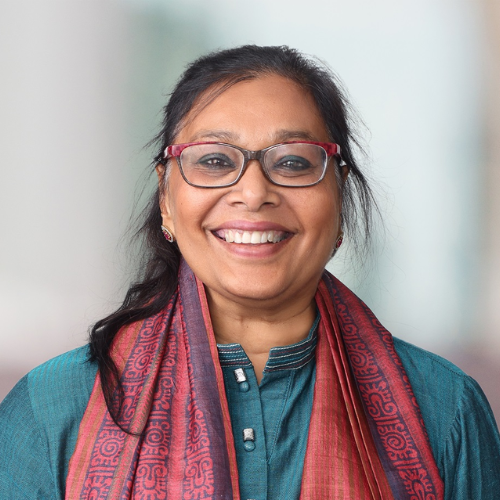
Madhu Krishna leads the foundation’s investments in India to advance gender equality. Her areas of…More

Madhu Krishna leads the foundation’s investments in India to advance gender equality. Her areas of focus include technical solutions, public policy, strategic communications, community engagement, and large-scale implementation of proven interventions.
Madhu is committed to reducing inequity and restoring human dignity for underserved and disadvantaged populations, and passionate about gender equity in all the work that she supports. She worked in private-sector consulting for medium and large firms, with a focus on market research, techno-economic feasibility, and environmental impact before moving into the development field at PATH India. At PATH, she worked in a variety of health-related areas, including vaccines, maternal and child health, and communicable diseases, and she led the introduction of a new vaccine and safe injection devices in India’s routine immunization program.
Madhu holds a master’s degree in social sciences from the University of Delhi.
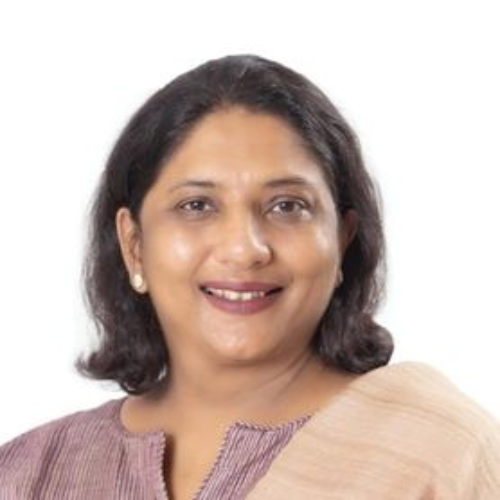
Dhruvi Shah is the Executive Trustee and Chief Executive Officer (CEO) of Axis Bank Foundation. In h…More

Dhruvi Shah is the Executive Trustee and Chief Executive Officer (CEO) of Axis Bank Foundation. In her current role, she heads the Foundation’s programmes which aim to create sustainable livelihoods for vulnerable communities by bolstering and diversifying their streams of income. Before taking up the role of CEO in November 2020, Dhruvi had been the Head of Programs at Axis Bank Foundation since 2016.
Dhruvi has over 24 years of experience spanning banking, microfinance and rural development. Before joining Axis Bank Foundation, Dhruvi was with The Royal Bank of Scotland (RBS) N.V (Formerly known as ABN AMRO Bank N.V) for 18 years where she shaped their philanthropy and corporate citizenship engagement.
In 2008, Dhruvi took up the responsibility of ABN AMRO’s ‘Sustainable Development and Not-for-Profit Management’ vertical. She was instrumental in the establishment of the RBS Foundation India, where she used her deep understanding of banking and microfinance to lead their operations, systems and processes.
Dhruvi is also the curator and author of ‘The Book of Aspiration’ – a collection of inspirational memoirs from social leaders. She spends her time guiding emerging social entrepreneurs and youth who wish to make a difference. She likes to travel to the hinterlands of the country to understand rural communities and cultures. As an avid reader, she focuses on understanding the interconnectedness and influence of culture on people’s lives and interactions with nature & things.
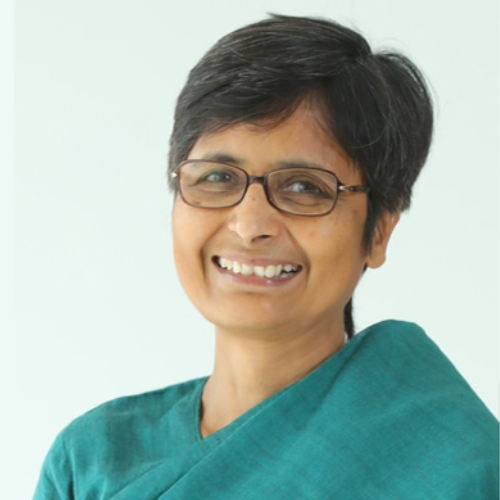
Neelima Khetan, is a visiting fellow, Brookings India; former- Group CSR head, Vedanta Group; VP of …More

Neelima Khetan, is a visiting fellow, Brookings India; former- Group CSR head, Vedanta Group; VP of CSR at Hindustan Zinc; Director, CSR and Sustainability, Coca-Cola India and SouthWest Asia; India Country director, American India Foundation; CEO, Seva Mandir; acting director, Institute of Rural Management, Anand (IRMA); and recipient, Lakshmipat Singhania-IIM Lucknow National Leadership Award and Maharana Mewar Award.
The author of Anchoring Change is also a Visiting Fellow with CSEP. She also does consulting work on development issues, especially strategy, governance, design and impact. She has worked extensively with civil society organizations and corporate social responsibility groups, and currently serves on the boards of several foundations and non-profits. Other than family and friends, books and plants bring her abiding joy.
RECOGNITION – 1) 101 Most Impactful CSR Leaders, 2019 – by World CSR Day & World Sustainability. 2) Laxmipat Singhania-IIM Lucknow National Leadership Award for young leaders by India‟s Prime Minister in December 2006. 3) In March 2007, received the Maharana Mewar Award from the Maharana Mewar Foundation, for work of permanent value to society through service and philanthropy.
EDUCATION – Masters in Rural Management (PGDRM); Institute of Rural Management, Anand (IRMA), Gujarat, India. Bachelor of Commerce; Shri Ram College of Commerce, Delhi University, India
- 8th August
- 4:00 PM – 5:15 PM
- India Habitat Centre – Tamarind Hall
- Hybrid
The Future is Young | Local Economic Opportunities
India is now the most populous country and will soon become $ 5 trillion economy. Big gains from remodelled welfare architecture (right based legislation and DBT+JAM) have provided a basic safety net to citizens. The innovation ecosystem and strategic geo-political positioning has created favourable conditions for growth. Rural areas have seen a demographic shift with a young, aspirational, tech-savvy cohort with formal education, including girls with professional degrees. The rural economy can be accelerated by creating localized opportunities for economic growth and increasing productivity. We need to expand opportunities across the primary, secondary, and tertiary sectors of the rural production system, capitalizing on the strengths of local artisans, farmers, industries, and available resources. But the future-ready rural economy to be not just inclusive but needs a hyperlocal economic opportunities model. The session seeks to contextualize “local economy growth” within the context of India’s aspirations for becoming a high-income growth country, with policy measures and role evolution of all stakeholders.
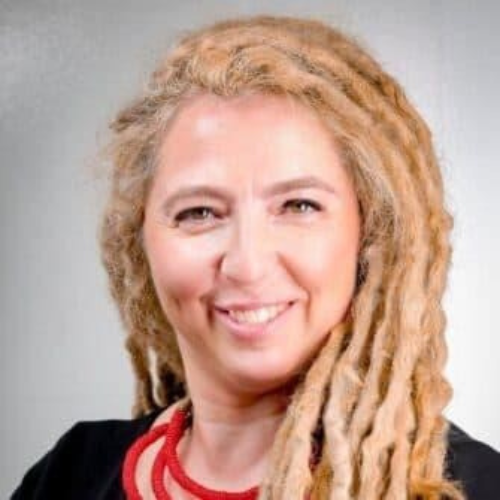
Alice Gugelev holds the position of Managing Director at GDI US and serves as the Chief Executive Of…More

Alice Gugelev holds the position of Managing Director at GDI US and serves as the Chief Executive Officer of GDI Africa. In these roles, she collaborates with prominent corporations, commercial investors, and international non-governmental organizations (INGOs) to incorporate social impact, innovation, and social entrepreneurship initiatives into their portfolios. Additionally, she assists philanthropists and social enterprises in achieving more impactful and transformative change at the systemic level.
Before joining GDI, Alice had professional experience at Bridgespan, Bain & Co, the World Bank, and the Bank of Tokyo-Mitsubishi. She holds the positions of co-founder and executive director at The Muskoka Foundation, as well as co-founder and chief strategy officer at AppMkr. Alice holds an MBA from Harvard Business School and possesses a double major BA in International Economics and East Asian Studies from Columbia University and Stanford Japan Center. In her leisure time, Alice takes pleasure in spending quality moments at her cabin in Canada with her family – despite the presence of numerous uninvited black flies.
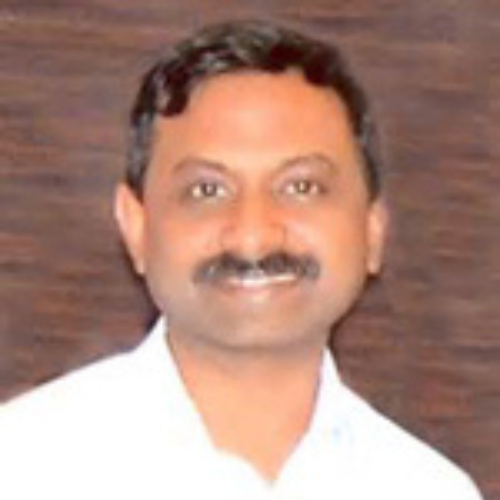
Shri Shailesh Kumar Singh, IAS (JH: 1991) is Secretary, Ministry of Rural Development. In his role a…More

Shri Shailesh Kumar Singh, IAS (JH: 1991) is Secretary, Ministry of Rural Development. In his role as the Secretary to Government of India, Department of Rural Development, Shri Shailesh Kumar Singh works on comprehensive policy making for the Rural Development sector in India which involves formulation, coordination and implementation of programmes that address the development needs of the rural areas, focusing especially on mitigating and eradicating poverty and creating sustainable employment and livelihood opportunities.
He has more than 30 years of experience as an Indian Administrative Service Officer having worked in the fields of Small & Medium Enterprises, Steel, Coal, Transport, Urban Development & Rural Development, Industry, Elections, Information Technology, Education, Human Resource Development, General Administration, etc.
Service- Indian Administrative Services (IAS)
Year of allocation & cadre- 1991 – Jharkhand Cadre
Education- B.Tech in Electrical Engineering from IIT Kanpur and Masters in Public Administration in International Development from Harvard University
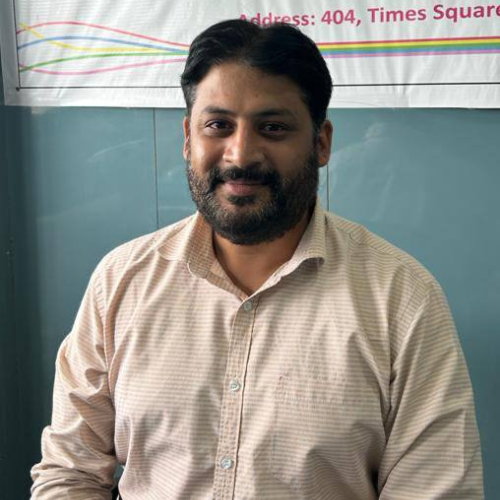
Shrish is an Associate Director with the Transforming Rural India Foundation and leads its operation…More

Shrish is an Associate Director with the Transforming Rural India Foundation and leads its operations in the state of Chhattisgarh. He has spent almost 15 years in the rural development sector focusing on system strengthening efforts that solves for the issues of rural at scale.
Shrish has been a British Chevening Scholar and holds masters degrees from University College London and Tata Institute of Social Sciences.


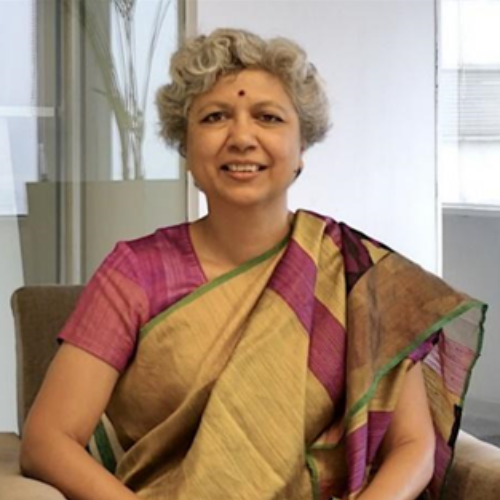

- 8th August
- 5:15 PM
- India Habitat Centre – Tamarind Hall
- Hybrid
The Rural Renaissance Valedictory
The colloquy conversations with and amongst communities, policy makers, thought leaders and practitioners will be consolidated. This session will bring together key-takeaways and actionable insights that surfaced during the 2023 Rural Renaissance Colloquy to help truly transform rural India.
A grassroots foundation, deeply focused on challenges faced by marginalized communities and in particular of women in the bottom 100,000 villages of India. We bring a deep knowledge and an inventory of working solutions for stranded India and mechanisms for scaling-up those solutions.

